
World Peace Newsletter - The greatest thing in life is internal peace, external peace and global peace!
Peace is the key ingredient to Happiness.
Peace within means peace without.

World Peace Newsletter - The greatest thing in life is internal peace, external peace and global peace!
Peace is the key ingredient to Happiness.
Peace within means peace without.
Be the change you wish to see in the world.
Peace starts from within!
A change in perception leads to a change in attitude, which leads to a change in behavior, which leads to a change in the world.
Life's what you make it!
Learn Peace - Teach Peace - Share Peace!
The Hague Agenda for Peace and Justice for the 21st Century - Dec. 31, 2017
- Insist that peace education be made compulsory at all levels of the education system.
- Demand that education ministries systematically implement peace education initiatives at a local and national level.
- Call on development assistance agencies to promote peace education as a component of their teacher training and materials production.
BOOK 2: Learning to Abolish War - Sample Learning Units for Elementary, Middle and Secondary School
Peace Lessons from Around the World
Time to Abolish War - A Youth Agenda for Peace and Justice
UNESCO's Integrated Framework of Action on Education for Peace, Human Rights, and Democracy
United Nations Universal Declaration of Human Rights - Dec. 17, 2017
United Nations International Covenant on Civil and Political Rights
Available in many languages, the UN homepage has news, the week in review, focus issues, statistics, photos, radio, video and more.
Peace Operations Training Institute Courses - Dec. 17, 2017
This website offers courses online or with a textbook. Some are free and available in multiple languages. It is also interesting just to see the numerous courses offered in the various fields relating to peace keeping, humanitarian efforts and security operations. Each course has a 10-30 page pdf preview that you can view prior to purchasing.
Peace Operations Training Institute Security Training Manual
This 28 page pdf manual (Lesson 1) was developed for UN workers in the field but also has useful information for classroom education.
Cultivating Peace education materials website - Dec. 17, 2017
This Canadian organization offers pdf manuals, handouts and videos for peace educators.
Cultivating Peace educational materials website - cultivatingpeace.ca
Cultivating Peace - Module 1 resource links
Cultivating Peace - Taking Action, 68 page pdf for High School classrooms
United States Institute of Peace: Educator Toolkits for High School & Middle School Classrooms - Dec. 12, 2017
This webpage has links to the pdf manuals in English, Spanish, French and Arabic. You can click on the two links below to go directly to the english version pdf manuals.
United States Institute of Peace: Peace Clubs, Contests and additional resources for Students

* Peace is not merely the absence of war and hatred (negative peace / cold war) but also the presence of cooperation, compassion and worldwide justice (positive peace / hot peace).
* The means we use to reach our ends are extremely important. Hopefully your "means" are kindness-centered and non-destructive. Often (possibly always) being kind is more important than proving you are right. When it is critical that you prove your point, remember to intertwine wisdom with compassion. Recent events would suggest that the human race is starting to learn that change can be achieved more effectively by mass demonstrations and peaceful means than by negative, destructive and hateful means.
* "Happiness is when what you think, what you say, and what you do are in harmony." - Mahatma Gandhi
* "There is nothing like returning to a place that remains unchanged to find the ways in which you yourself have altered." - Nelson Mandela
* "Change your thoughts and you change your world." - Norman Vincent Peale
* We are not disturbed by what happens to us, but by our thoughts about what happens to us. - Epictetus
* "It is not possible to be in favor of justice for some people and not be in favor of justice for all people." - Martin Luther King, Jr.
* "One hour's meditation on the work of the Creator is better than seventy years of prayer." - Muhammad
* "Prayer is when you talk to God; meditation is when you listen to God." - Diana Robinson
* I have just three things to teach: simplicity, patience, compassion. These three are your greatest treasures. Simple in actions and thoughts, you return to the source of your being. Patient with both friends and enemies, you accord with the way things are. Compassionate toward yourself, you reconcile all beings in the world. - Tao Te Ching: 67
* "I have come to realize that people are about as happy as they make up their minds to be." - Abraham Lincoln
* Asked, Who is the rich man? Epictetus replied, He who is content.
* A wise person creates a harmony between the head, the heart, and the body. In this harmony comes the revelation of the source of one's life, the very center, the soul. - OSHO
 .
. .
. =
= 
* The doorways to the realm of heaven (Brahma) are right here on earth and they are four in number: we enter the highest heavenly abodes through loving kindness (metta), compassion (karuna), sharing joy (muditha), and equanimity (upekkha). It is through service in this world, not by abandoning this world, that we attain to heavenly realms or spiritual fulfillment. - Buddha
* Peace I leave with you, My peace I give to you; not as the world gives do I give to you. Let not your heart be troubled, neither let it be afraid. - Jesus (John 14:27)
* If we have no peace, it is because we have forgotten that we belong to each other. I was once asked why I don't participate in anti-war demonstrations. I said that I will never do that, but as soon as you have a pro-peace rally, I'll be there. - Mother Teresa
* Is 2012 the end of one stage in human development and the beginning of a new chapter in human evolution? The darkness and pain of the era of the "Art of War" (Death) appears to be giving way to the age of enlightenment and the "Art of Peace" (Life) thanks in a large part to the vast improvement in 2-way communication the World Wide Web has created.
* Each and every master, regardless of the era or place, heard the call and attained harmony with heaven and earth. There are many paths leading to the top of Mount Fuji, but there is only one summit --- love. - Morihei Ueshiba
. . Table of Contents
Front Page,
peace tips,
Peace Building Outline,
Current news from the UN,
ancient insights,
new insights,
recent insights,
stages of life tips,
not-so-recent insights,
enlightenment tips,
enlightenment & happiness relationship tips,
laughter tips,
happiness tips,
good day/bad day checklist,
10 success tips,
7 stages of grief,
dealing
with anger, regrets & set-backs, dealing with being
upset, depression tips,
health tips,
nutrition tips,
fitness tips,
computeritis tips, sleeping tips,
allergy tips,
cellulitis tips, mental tips,
universal consciousness tips,
destiny tips, memory tips,
drawing tips, art/culture tips,
dream tips,
subconscious tips, intuition tips,
reality tips, goal setting tips,
building an achievement list,
wealth tips, success tips,
values and beliefs,
integrity tips, reincarnation
tips, love and marriage tips,
parenting tips, technology tips,
web page design tips, book tips (emotional intelligence),
universe tips,
E=mc² tips, pyramid marvels,
stressful events list,
education tips
. . . As we mature, so will
peace.
This newsletter exists for one purpose - To promote Peace.
If you find peace, or help another person find peace, you've improved the world!
Facebook Page and "Like" button created on June 12, 2011. Thanks to all for helping the community grow to 100,000 likes on December 3, 2011, 300,000 by December 2012, 600,00 by January 2016. Peace be with us all.
Facebook Page @ Facebook.com/WorldPeaceNewsletter - Click Here 
Translate World Peace Newsletter into your language.
- Click Here & Type www.worldpeacenewsletter.com
You may also copy and paste the above www address into the "translate" box.
Note: Only the first 10 pages or so will be translated. Hit re-load or re-fresh to get the next 10 pages.
There are many ways to promote peace in the world but perhaps the best way is to promote it within ourselves. Peace is a gradual and wonderful event that occurs because compassionate people are inspired to help others discover the joy of peace! Helping others also has the direct effect of increasing our personal peace and well-being, but this is merely one of the many bonuses that come from sharing our kindness with our fellow human beings. Did we mention that is better to give than to receive? :)
Peace, like reading, writing, mathematics, drawing, emotional intelligence and enlightenment ("understanding/comprehension/compassion/meditation/intuition"), are learned skills that improve our knowledge, maturity, health, happiness and longevity. Peace is probably the most important lesson we should learn during our lives and the sooner the better. The advent of the world wide web may just provide the boost in knowledge, wisdom & peace humankind has been waiting for. Improved communication may be the difference between extinction and survival. Through knowledge, Peace will evolve. Knowledge is power. Knowledge combined with Enlightenment leads to wisdom. Wisdom is Peace!
Blessed are the peacemakers (those actively working to reconcile alienated persons) for they shall be called the children of God.
We believe that every person ought to have the opportunity to find peace. That being said, who are the ones who are most likely in the position to help those who cry out for help? Probably those who have already found peace and have the resources to reach out to those in need. Now that we are truly a global village, it may be more important than any time in human history that we really become our brother's keeper. Please help in any way you can. The rewards to the entire world will be almost unimaginable. (Paradise on Earth?) Peace be with you!
As this newsletter grows and improves (thanks in large part to your comments, suggestions, and guestbook entries) we envision contests, educational programs and ways that we as individuals (and groups) can make significant advances towards real peace in the world. We believe the peace process must start as a grassroots movement and create the "trickle-up" process.
Here is a rather scientific question. Einstein changed the world when he created the equation E=mc2 in 1905. (side note: neutrinos can move faster than the speed of light, as announced this past week at CERN / OPERA). Our question is what is the formula for peace and who will discover it? Is it something like: Love + Justice divided by Compromise and Respect = Peace? Perhaps we can find the formula in 2011 or 2012? Lots of nations could use this to their benefit. What are the missing elements of this world changing formula?
[Sign Our Guestbook / Announce World Peace Events & Organizations]
Please keep "Events & Organizations" announcements short and sweet .)
You may also send private feedback.
Example Guestbook Comments:
Ghulam Mustafa PhD
Dear sir /Madam
The highest virtue is to preach peace. This is the secret of morality, ethics, humanity and civility. Peace is the process of progress and prosperity however interest is natural instinct of every man and nation, but thinking faculties and rationalism mediate between peace and interest to avoid conflicts, tensions, frustration, violence and wars. The entire philosophy of life may be summarized as peace is at the beginning and it is at the end, between them is interest.

Peace Education 101 . com - "Peace Education Curriculum for Primary Schools and Secondary Schools" - CLICK HERE
- Created for teachers and students of Peace - Added to WPN on August 2017
World Peace and Reality - an eassy on Peace - Added to WPN on November 21, 2012
United Nations
United Nations Universal Declaration of Human Rights
United Nations International Covenant on Civil and Political Rights
Available in many languages, the UN homepage has news, the week in review, focus issues, statistics, photos, radio, video and more.
Translate World Peace Newsletter into your language.
10 Success Tips & 17 Principles of Personal Achievement by Napoleon Hill (1920)
- Click Here & Type www.worldpeacenewsletter.com
You may also copy and paste the above www address into the "translate" box.
Note: Only the first 10 pages or so will be translated. Hit re-load or re-fresh to get the next 10 pages.
Facebook Page @ Facebook.com/WorldPeaceNewsletter - Click Here 
Peace begins with you!
The main goal of World Peace Newsletter is to promote World Peace as a viable
possibility by breaking it down into small steps (we realize that many people believe peace is impossible). Step 1: Find Peace within. Step 2: Teach others the ways of Peace. Step 3: Help those less fortunate than yourself (even those that you may be at "war" with). Step 4: Strive to Evolve (Human Evolution).
The
steps keep going until we reach paradise: Peace on Earth, Goodwill
to All!
How is peace achieved? One soul at a time.
Add a BOOKMARK to find World Peace Newsletter.com again.

|
|

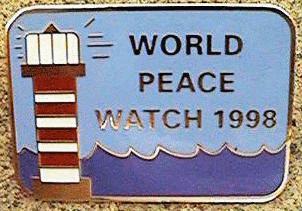 - Peace Pin from 1998
- Peace Pin from 1998
[Sign Our Guestbook / Announce World Peace Events & Organizations]
Please keep "Events & Organizations" announcements short and sweet .)
You may also send private feedback.
[View Our Guestbook]
We appreciate your comments. It's inspirational to know so many people around the world want peace. Peace be with us all :)
World Peace Newsletter "Front Page" :
* Enjoy the here and now. It is a gift called the present. (it is also a dominant aspect of Enlightenment)
* The Internet was nominated for the Nobel Peace Prize in 2010. Consider this: Communication is probably the most important aspect of a happy relationship, especially in a marriage. How important is communication in regards to world peace? Is there any other medium at this point in time that provides more freedom to communicate than the internet? Didn't someone once say "The Medium is the Message"? :)
-------------------------------------------------------------------------------Inner peace (or peace of mind) refers to a state of being mentally and spiritually at peace, with enough knowledge and understanding to keep oneself strong in the face of discord or stress. Being "at peace" is considered by many to be healthy (homeostasis) and the opposite of being stressed or anxious. Peace of mind is generally associated with bliss and happiness.
Peace of mind, serenity, and calmness are descriptions of a disposition free from the effects of stress. In some cultures, inner peace is considered a state of consciousness or enlightenment that may be cultivated by various forms of training, such as prayer, meditation, T'ai Chi Ch'uan or yoga, for example. Many spiritual practices refer to this peace as an experience of knowing oneself. Finding inner peace is often associated with traditions such as Buddhism and Hinduism.
Tenzin Gyatso, the 14th Dalai Lama, emphasizes the importance of inner peace in the world:
"The question of real, lasting world peace concerns human beings, so basic human feelings are also at its roots. Through inner peace, genuine world peace can be achieved. In this the importance of individual responsibility is quite clear; an atmosphere of peace must first be created within ourselves, then gradually expanded to include our families, our communities, and ultimately the whole planet."
-------------------------------------------------------------------------------
* The power of positive thinking when combined with the power of positive deeds creates positive results and happiness (Enlightenment). On the contrary, negative thoughts combined with negative deeds tend to be a very destructive force and leads to misery, pain and suffering (See Buddha & Dalai Lama in "Ancient Insights" below).
* It takes forgiveness, humility and understanding to put out the fire inside you when someone else lit the match.
* Be mindful not to get so caught up in making a living that you forget to make a life.
* What is the tie that binds almost every human being on the planet? . . . . We all want peace.
We all have so many differences : race, religion, nationality, gender, height, weight, age, etc.
One of the key aspirations that almost all of us share is the desire for peace and happiness (inner, local, and global).
( : Another key thing we share is the love of really cute animals : )
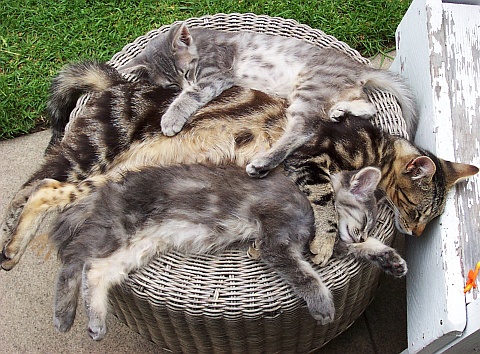
Confusism & World Peace - From Wikipedia
The "Great Learning" is the first of the Four books which were selected by Zhu Xi during the Song Dynasty as a foundational introduction to Confucianism. It was originally one chapter in Classic of Rites.
The book consists of a short main text, attributed to Confucius and nine commentaries chapters by Zeng Zi, one of Confucius' disciples. Its importance is illustrated by Zeng Zi's foreword that this is the gateway of learning.
Some of the terms within the text form an important part of both classical and modern Chinese political discourse. For example, the concept of world peace has been the stated goal of Chinese statecraft from the Zhou dynasty to the Kuomintang and to the Communist Party of China, as well as of philosophers like Tan Sitong or Liang Qichao. Another term used in the text, "qin-min" which James Legge, following Zhu Xi, amends to "xin-min" and translates as "renovating the people" instead of "loving the people", is the name of the People First Party, one of the minor parties in Taiwan.
The main text reads:
The Way of the great learning involves manifesting virtue, renovating the people, and abiding by the highest good.
The ancients who wished to illustrate illustrious virtue throughout the world, first ordered well their own States.
Wishing to order well their States, they first regulated their families.
Wishing to regulate their families, they first cultivated their persons.
Wishing to cultivate their persons, they first rectified their hearts.
Wishing to rectify their hearts, they first sought to be sincere in their thoughts.
Wishing to be sincere in their thoughts, they first extended to the utmost their knowledge.
Such extension of knowledge lay in the investigation of things.
Things being investigated, knowledge became complete.
Their knowledge being complete, their thoughts were sincere.
Their thoughts being sincere, their hearts were then rectified.
Their hearts being rectified, their persons were cultivated.
Their persons being cultivated, their families were regulated.
Their families being regulated, their States were rightly governed.
Their States being rightly governed, the entire world was at peace.
From the Son of Heaven down to the mass of the people, all must consider the cultivation of the person the root of everything besides.
The Great Learning is significant because it expresses many themes of Chinese philosophy and political thinking, and has therefore been extremely influential both in classical and modern Chinese thought. Government, self cultivation and investigation of things are linked. It links together individual action in the form of self-cultivation with higher goals such as ultimate world peace as well as linking together the spiritual and the material. By defining the path of learning (tao) in governmental and social terms, the Great Learning both links the spiritual with the practical, and creates a vision of tao that is radically different than that presented by Taoism. In particular, the Great Learning sets Confucianism as being this-worldly rather than other-worldly. Instead of basing its authority on an external deity, the Great Learning bases its authority on the practices of ancient kings.
-------------------------------------------------------------------------------
* Try to put yourself into situations that evoke your higher nature, not your lower nature. Situations that involve harming others are seldom (if ever) your higher nature.
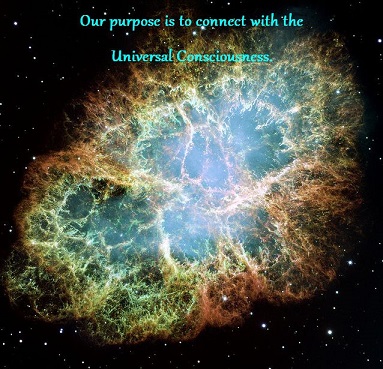
UNIVERSAL CONSCIOUSNESS - The 100th Monkey Effect?
The Hundredth Monkey Effect is based upon the principle that after one monkey on an island discovers how to wash a coconut in the water to remove sand and dirt, the rest follow suit until the last, or "hundredth" monkey, finally learns this improved method. At that point, monkeys on other islands become aware of this knowledge without "direct" communication. This same effect has happened repeatedly in human history, where inventors have simultaneously discovered inventions that others around the world were contemplating at the same time, or where mothers somehow know when one of their children is in pain hundreds of miles away. The thoughts become energy that is available to others that tune into this energy field, or universal consciousness. It may occur more often when we are sleeping or in "hypnotic" or meditative states than during our normal waking state. If we already tap into this energy field without being consciously aware think what we will be able to do if we exercise our minds and use this incredible resource to our best advantage! When you stop and think about it, you are adding to the energy field right now by merely reading this information on peace. Thank you, this is how it will spread. We are investing our time, money, energy and dreams in this principle in order to help World Peace become a reality. Who will be the 100th Monkey for Peace? It might be you!
"If 5% of the population work for peace, there will be peace."
Quote from Peace Center, Theosophical Society in the Philippines
We estimate that there are only around 1-2% of the population actively working for peace. On the other hand, we only need another 3-4 % in order for peace to become a reality.
* Happiness. What is it and how is it attained? Some suggest it is the combination of self esteem, gratitude, sharing, daily laughter, inner and outer peace. How can we give the gift of happiness to the world? By helping others!
We all know that it is better to give than to receive. When we are selfish and judgmental, we fail both separately and together. When we all give, we ALL receive. We get what we give. Give hate and anger, get war and poverty. Give love and compassion, get peace and prosperity. That is the way of both the individual and the world.
* It seems that in the past, and possibly the present, it has been much easier to "make war" than to "make peace". This is because we have been well trained on how to make war and poorly trained on how to make peace. How can we change this reality and create a peaceful future? Teaching peace, compassion and empathy are obvious solutions. Helping to reduce poverty, pain, suffering and injustice are other ways. What other ways can you think of?
* "One isn't necessarily born with courage, but one is born with potential. Without courage, we cannot practice any other virtue with consistency. We can't be kind, true, merciful, generous, or honest." - Maya Angelou
* When attempting to determine what is the best direction for your life (and that of your family) remember that happiness is more important than money! You may think that money is more important but what you are most likely "trained" to think is that money will bring you happiness. That is not really true. The pursuit of money may bring riches but that does not mean happiness. Those who are smart enough (or lucky enough) to seek peace are those most likely to find happiness!
* "It might seem that some people have more intuition than others but it is potentially available to everyone. Some people choose to develop it, others do not." - Francis Vaughan, Awakening Intuition
* "Intellect is the functioning of the head (the mammalian brain), instinct is the functioning of the body (the reptilian brain), and intuition is the functioning of the heart (the spiritual/inspirational brain). And behind these three is the master, your being, whose only quality is witnessing. A wise person creates a harmony between the head, the heart, and the body. In this harmony comes the revelation of the source of one's life, the very center, the soul. We all have a past, present and future. Instinct is what belongs to our animal past. Intellect is human. It is our present. The intellect is fallible because it is new, a recent arrival. Intellect lives through prejudices; it is never fair. And the third thing, which is our future, is intuition. So these three words have to be understood. Intuition opens it's doors through meditation. Meditation is simply a knocking on the doors of intuition. Intuition is your consciousness. Intellect is your mind. Instinct is your body. To understand enlightenment you must understand that intellect is a tool. It is a servant, not the master." - Osho, Intuition. Knowing Beyond Logic
* People often wonder how we will someday change and put an end to war and hatred. Many enlightened individuals believe that intuition is the key to our future. Intuition enables us to advance beyond our animalistic instincts and beyond our human intellect to a realm of higher consciousness (a meditative/spiritual/compassionate existence). For enlightened individuals that reality already exists. They have already found Peace on earth.
* You can lose your money, you can spend your money, and if you work real hard you can earn it all back, but if you waste your time you'll never get it back.
* People often talk about turning "knowledge" into "wisdom". What does this mean?
Does it mean that logic merges with emotion / humanism / intuition?
Another thought : What is wisdom, and why do so few of us actually discover and utilize wisdom to the fullest extent?
Is it possible that many of us waste too much of our time pursuing money instead of wisdom?
We've all heard that "time is money" but have you ever considered that wasted time is what causes us to sacrifice wisdom and happiness?
What is more important, money or wisdom (peace)?
How do you achieve "self-actualization"? Is it by making money or by making peace? :)
* "It is not the number of books you read, nor the variety of sermons you hear, nor the amount of religious conversation in which you mix, but it is the frequency and earnestness with which you meditate on these things till the truth in them becomes your own and part of your being, that ensures your growth." - Frederick William Robertson
* Another key to enlightenment and happiness is keeping a "Gratitude Journal". Whether you write your daily blessings down or just record them in your mind, it is important to focus on positive events in your life. Most of us have many things we should be thankful for.
* A gold medal (or a million dollars, or a championship ring) may be a wonderful thing, but if you are not enough without it, you will not be enough with it. Be who you are before you acquire the things that you think will make you who you are.
* "We are cups, constantly and quietly being filled. The trick is, knowing how to tip ourselves over and let the beautiful stuff out." - Ray Bradbury
* Thanks to all for visiting and caring about Peace. The funny thing about caring about peace is that peace provides a reward not only for those who care about it and hopefully discover it, but also for those that seek it. Seek and you shall find!
World Peace Newsletter has always been searching for peace but this year in particular we have attempted to discover the true meaning of happiness and how we and others can truly "live" in happiness, regardless of our current life situation.
What we seem to be discovering is that the search for enlightenment (which we started many years ago) and the search for happiness seem to be inter-related. It seems you can be happy without being enlightened but it may be more difficult to be enlightened without being happy.

* Peace is not merely the absence of war and hatred (negative peace / cold war) but also the presence of cooperation, compassion and worldwide justice (positive peace / hot peace).
* Freedom and Peace. What is the relationship between these two conditions? Can you have one without the other?
* "Those who deny freedom to others, deserve it not for themselves; and under a just God, can not long retain it." - Abraham Lincoln
* "It is more difficult to organize peace than to win a war; but the fruits of victory will be lost if the peace is not well organized." - Aristotle
* "Those who love peace must learn to organize as well as those who love war." - Martin Luther King, Jr.
* "Never doubt that a small group of thoughtful citizens can change the world. Indeed, it is the only thing that ever has." - Margaret Mead
* "We people of the world need to find ways to get to know one another - for then we will recognize that our likenesses are so much grater than our differences, however great our differences may seem. Every cell, every human being, is of equal importance and has work to do in this world" - Peace Pilgrim
* "If you want to make peace with your enemy, you have to work with your enemy. Then he becomes your partner." - Nelson Mandela
* "It is not possible to be in favor of justice for some people and not be in favor of justice for all people." - Martin Luther King, Jr.
* The means we use to reach our ends are extremely important. Hopefully your "means" are kindness-centered and non-destructive. Often (maybe always) being kind is more important than proving you are right. When it is critical that you prove your point, remember to intertwine wisdom with kindness.
* What is war? It is a state of hostility between nations (or within nations; or within individuals) characterized by fighting, destruction and bloodshed. Wars are often caused by real/perceived injustice, hatred, poverty, and the desire for power.
* What is perhaps the best way to prevent war? Conflict prevention and Conflict resolution/transformation requires that we eliminate the nature of the hostilities and attempt to create harmony and equality between the various parties. Restorative justice implies that the perceived injustices must be resolved through either negotiation, mediation, arbitration, community conferencing, community meditation, negotiated rule making, collaborative/international law, or as a last resort, military action. Trauma recovery / Identity renewal can help prevent war torn areas from falling back into further fighting. Youth development strategies can help our future adults from repeating the mistakes we have made that have lead us to war. Philosophy suggests that nations that have found peace should help less peaceful nations by sharing knowledge, food and other resources. Our conscience tells us that we should treat others the way we want to be treated, with dignity and respect.
* How can we achieve Peace on Earth? First and utmost, we must find it within ourselves. By sharing our inner peace with others, peace will spread. By raising our children properly and teaching them to respect and love their neighbors (didn't someone say this before? :) they will learn the joy of peace. The peace process should be a predominantly preventative measure. A gram of prevention is worth a kilogram of cure. (See conflict prevention & resolution in previous paragraph).
Peace should likely start as a grassroots movement, thereby creating a "trickle-up" process. Not only can we teach others about peace but we can suggest alternatives to governments and political candidates that continue to advocate war as the main solution to civil and international conflict. Along the way, some form of world "Planning and Lawmaking" committee probably needs to be established that includes all nations. One nation's problems are problems for all of us. We must learn to see
ourselves as one small planet and not be so concerned with our nationality, race
or religion. When it comes right down to it we are all human, and we should work together for human rights and justice for all. Shouldn't we?!
Think what we could accomplish if we all worked together to
create a true world economy. We could end starvation, reduce poverty, create
jobs and work towards common goals such as worldwide justice, peace education, pollution control and planet management.
The following is what is covered at PeaceEducation101.com
Peace 101: Peace Introduction
Introduction to Peace.
Peace definitions.
Types and locations of Peace.
Philosophy of peace in life.
Using the arts to teach peace.
Introductory Peace education through mindfulness, self awareness and interpersonal communications.
Peace 201: History of Humankind
The Ages of Humankind.
History of Human Civilization.
History of Human Achievement.
The Seven Wonders of the World.
History of Wars.
Deadliest Wars and Natural Disasters.
Brief Background of World Religions.
Peace 301: Peace Education
Peace processes and ways to facilitate peace.
Inner Peace, Enlightenment, Salvation and the End of Suffering.
Peace in countries and governments.
Peace organizations.
Peace awards.
Peace Treaties.
Peace 401: Peace in Practice
Practicing Peace in Real Life.
Teaching Peace.
Promoting Peace.
Peace Occupations.
Examples of information included at PE101:
Peace is a vastly greater concept than the lack of war, violence, poverty and inner turmoil. Peace is the combination of bodily peace, family peace, local peace, national peace, inner peace and world peace. Accordingly, true peace must begin with food, water, vitamin nutrition and medical care for both rich and poor alike. Next, peace training starts with the family and in our education systems. Peace needs to surround us in the form of local safety and security which is best achieved through communication and negotiation with neighbors to attain mutual trust and respect for one another. Governments and state leaders can assist in the peace process by creating and encouraging/enforcing moral and ethical standards, thus promoting justice, liberty, freedom, ethnic and religious tolerance, and constructive relations with all nations.
Inner peace may be the most important key to peace because through love (both of self and the world), faith, meditation , self-esteem, compassion, hope, kindness, gratitude and wisdom (self-cultivation), peace will spread to those around you. World peace is achieved by combining all the "peaces" together to create hot peace (as opposed to cold war). Hot peace is the absolute presence of worldwide justice, freedom, cooperation, negotiation (working with both friends and enemies), education, mutual respect, sharing, compassion, kindness, happiness, joy, equanimity, human dignity and harmony with nature, animals and mother earth. World Peace is merely an unsolved puzzle waiting for loving people to put the "peaces" together. Through love, World Peace not only becomes possible, peace becomes probable.
The benefits of human beings working together to create peace for all, will be reduced poverty, crime, war, hate, injustice, pollution, etc. The true benefit is living in a world where love, caring and compassion become the standard in this beautiful planet.
The following outline can be used as a guide for training future peace educators on the stages of war/peace and methods that can be employed to create sustainable peace. This peacemaking outline is a "work in progress" (Created on July 17, 2011) and will be updated as we learn more about the peace process. Although WorldPeaceNewsletter.com started in 1997 in order to help people find peace (mainly inner peace), it isn't until now (2011) that we realized that people really don't understand how to create local & world peace. The peacemaking information that is currently available tends to be ambiguous, unstructured, lengthy and expensive for the countries that most need this training/education. We hope to change this reality either through our efforts or the efforts of others that understand our dissatifaction with the peacemaking information that is currently available to peace builders, NGO's, and others that want to create a more peaceful world. We encourage you to send us your comments, ideas, suggestions, and missing elements in sections 1, 2, 3 and 4. Please email them to worldpeacenewsletter@gmail.com - Thank you for caring about peace!
E-mail - Click Here
1) Conflict / Confrontation / Injustice:
a) Threats
b) Exploitation of resources with little regard for civilian population
c) Denial of physiological needs (food, water, shelter, medical, religious needs, etc..)
d) Violence
e) Terrorism
f) Genocide
g) Tribal / Ethnic / Religious War
h) National War
i) Regional War
j) World War
2) Peace Training Education:
a) Conflict analysis and early warning signs.
* i) Conflict analysis typically focuses on the problems of culturally divided states, especially those with weak democratic traditions, deep ethnic divisions, and histories of collective violence perpetrated by one group against another or by past/current governments against civilian populations.
b) Non-violent demonstrations, protests and media campaigns (previously only newspaper, radio and tv, now including the internet and social media).
b) Erasing ignorance / non-awareness / non-admission of the situations.
c) Creating consciousness of inequity & injustice of issues, interests, needs and wants.
* i) con�scious�ness
1.
the state of being conscious; awareness of one's own existence, sensations, thoughts, surroundings, etc.
2.
the thoughts and feelings, collectively, of an individual or of an aggregate of people: the moral consciousness of a nation.
3.
full activity of the mind and senses, as in waking life: to regain consciousness after fainting.
4.
awareness of something for what it is; internal knowledge: consciousness of wrongdoing.
5.
concern, interest, or acute awareness: class consciousness.
d) Conflict transformation.
* i) Conflict can be the transforming agent that causes the individual / region to change perception, attitude, behavior and actions.
* ii) Tranforming destructive relationships into productive social changes.
* iii) Identity transformation/education into peaceful souls (especially on children & youths).
* iv) Personal transformation (inner peace) related to grief and trauma, dealing with family deaths, anger, bitterness and hatred (especially in young, middle-aged and older adults).
3) The Peace Building Processes:
Negotiation - Getting all parties to talk face to face and resolve their differences by themselves.
Conciliation - A conciliator communicates with each side individually.
Mediation / Facilition - Promoting justice for all parties by an impartial third party.
Advocacy - A third party promoting one side due to real/perceived injustice.
Arbitration / Adjudictive - A third party makes a binding decision for both parties.
Threat of force - The threat of military action by a third party against the offending party.
Economic Sanctions - Third parties imposes economic sanctions against offending party.
These peace-building processes generally fall into three categories (or a combination of them) -
* Consensual (the parties reach a agreement by themselves)
* Adjudictive (court ordered by third party)
* Legislative (laws or rule-making determined by a group, organization, ruler or legislative body)
Transformative peacemaking focuses on the means (process) used to reach the ends, focusing very closley on the process instead of merely the desired outcome. The approach stresses fairness, understanding, respect, and inclusiveness of all parties in order to create a commitment to increasing justice, finding truths and healing relationships.
The end goal of these processes include some of the following:
a) Balancing power between the stronger and weaker parties (only possible when the advantages to each parties are understood).
* i) The weaker / wronged party gets restored justice and the attacking party hopefully acknowledges the wrongs committed.
b) Conflict resolution:
* i) Working together to reach independent and/or mutually acceptable goals.
* ii) Improving relationships between the various parties (not always possible).
* iii) Listening / understanding all sides without judging.
* iv) Develop / determine / promote solutions that lead to personal / regional social change and improvement.
* v) Attempt to create both individual empowerment along with mutual interdependence and community.
* vi) Reconcilliation - quarrels and differences are settled so that violent opposition are eliminated and hopefully friendships are created.
* vii) Reparations - the offending party reimburses the offended party for the wrong doings.
Conflict resolution can be viewed as "Distributed" or as "Expanded".
* "Distributed" may be equated to "dividing the pie" or "splitting the difference".
* "Expanded" attempts to discover many different solutions than first considered (value creation) prior to reaching agreements / dividing the pie, or coming up with solutions that create a win-win situation for all parties involved.
4) Sustainable Peace:
a) Reducing inequalities and perceived injustice.
b) Creating compassion and kindness for all parties involved.
c) The desired outcome of harmony can not solve the problem at the expense of justice. The fire will merely smolder and re-ignite later.
d) Creating understanding and comprehesion of what it means to create / sustain peace.
e) Living with Peace, Happiness, Liberty, Compassion and Joy!
We hope this Peacemaking outline is useful to you. We appreciate your comments and suggestions.
Printer Friendly version of this Outline

* Finding peace is not just about learning how to obtain it, but also learning how to hold onto it without slipping back to angry ways.
* If you want to achieve Peace, do not talk only to your friends, talk to your enemies.
* Blessed are the peacemakers (those actively working to reconcile alienated persons) for they shall be called the children of God.
* An eye for an eye just makes for a world full of blind people. - Mahatma Gandhi
* There will be tribulation and distress for every soul of man who does evil, but glory and honor and peace for everyone who does good. - Romans 2:9
* World peace (in our lifetime) may not mean that evil goes away, rather that good so overwhelms evil that evil cannot ruin the peace shared between all peace loving beings.
* You can not prevent the birds of sorrow from flying over your head, but you can prevent them from building a nest in your hair. - Chinese Proverb
* Kindness is an inner desire that makes us want to do good things even if we do not get anything in return. It is the joy of our life to do them. When we do good things from this inner desire, there is kindness in everything we think, say, want and do.- Emmanuel Swedenborg
* If two make peace with each other in a single house, they will say to the mountain, 'Move from here!' and it will move. - Jesus, Thomas 48
* There has been a book written titled "The Art of War".
When will we see a book with the title "The Art of Peace"?
* The farther we are from peace is proportional to our distance from happiness. The closer we are to hatred is proportional to our distance to ill-fortune.
* Evil is not conquered by just power (power corrupts and absolute power corrupts absolutely) but rather evil is conquered by love and wisdom because through the combination of these two qualities, evil becomes exposed. Love is also very powerful .)
* There is nothing that wastes the body like worry, and one who has any faith in God should be ashamed to worry about anything whatsoever - Mahatma Gandhi
* Guide our feet to the path of peace.
* Remember to stop and smell the "roses" along the path to enlightenment. Beauty is everywhere when you decide to take the time to enjoy it .)

* (Tao Te Ching: 67) I have just three things to teach: simplicity, patience, compassion. These three are your greatest treasures. Simple in actions and thoughts, you return to the source of your being. Patient with both friends and enemies, you accord with the way things are. Compassionate toward yourself, you reconcile all beings in the world.
* (The Quran) Do you think you can enter the garden of bliss without facing the trials and pains of those entering before you?
* (Zen Mind, Beginner's Mind) Which is more important: to attain enlightenment, or to attain enlightenment before you attain enlightenment; to make a million dollars, or to enjoy your life in your effort, even though it is impossible to make a million dollars; to be successful, or to find some meaning in your effort to be successful? If you do not know the answer, you will not even be able to practice zazen; if you do know, you will have found the true treasure of life.
* (Thomas:113, see also verse 3 & 10) His disciples said to him, "When will the kingdom come?" Jesus said, "It will not come by waiting for it. It will not be a matter of saying 'here it is' or 'there it is.' Rather, the kingdom of the father is spread out upon the earth, and men do not see it." (see also Luke 17:20 - "the kingdom of God is within you") - The "Fifth" Gospel, The Gospel of Thomas. - - The Gospel of Thomas parallels to the Four Gospels
* (Buddha) The doorways to the realm of heaven (Brahma) are right here on earth and they are four in number: we enter the highest heavenly abodes through loving kindness (metta), compassion (karuna), sharing joy (muditha), and equanimity (upekkha). It is through service in this world, not by abandoning this world, that we attain to heavenly realms or spiritual fulfillment.
* (Socrates) Do not take thought for your persons or your properties, but first and chiefly to care about the greatest improvement of the soul. I tell you that the virtue is not given by money, but that from vitue come money and every other good of man, public as well as private... The difficulty, my friends, is not in avoiding death, but in avoiding unrighteousness; for that runs faster than death.
* Nobel Peace Prize speech 1989 - Ethics for a new millennium.
By his holiness the 14th Dalai Lama. An excerpt:
Consider the following. We humans are social beings. We come into the world as the result of others� actions. We survive here in dependence on others. Whether we like it or not, there is hardly a moment of our lives when we do not benefit from others� activities. For this reason it is hardly surprising that most of our happiness arises in the context of our relationships with others. Nor is it so remarkable that our greatest joy should come when we are motivated by concern for others. But that is not all. We find that not only do altruistic actions bring about happiness but they also lessen our experience of suffering. Here I am not suggesting that the individual whose actions are motivated by the wish to bring others� happiness necessarily meets with less misfortune than the one who does not. Sickness, old age, mishaps of one sort or another are the same for us all. But the sufferings which undermine our internal peace: anxiety, doubt, disappointment, these things are definitely less. In our concern for others, we worry less about ourselves. When we worry less about ourselves an experience of our own suffering is less intense.
What does this tell us? Firstly, because our every action has a universal dimension, a potential impact on others� happiness, ethics are necessary as a means to ensure that we do not harm others. Secondly, it tells us that genuine happiness consists in those spiritual qualities of love, compassion, patience, tolerance and forgiveness and so on. For it is these which provide both for our happiness and others� happiness.
* (Tao Te Ching: 31) Weapons are the tools of violence, all decent men detest them. Weapons are the tools of fear; a decent man will avoid them except in the direst necessity and, if compelled, will use them only with the greatest restraint.
Peace is the highest value. If the peace has been shattered, how can one be content? His enemies are not demons, but humans like himself. He does not wish them personal harm. Nor does he rejoice in victory. How could he rejoice in victory and delight in the slaughter of men?
He enters a battle gravely, with sorrow and with great compassion, as if he were attending a funeral.

* Enlightenment is a state of wholeness, of being "at one" and therefore at peace. Enlightenment is not only the end of suffering, as Buddha put it, but also the end to the continuous conflict within and without, and the end of the dreadful enslavement to the incessant thinking that goes on in our minds. - Eckhart Tolle, The Power of Now. A Guide to Spiritual Enlightenment.
* Notice the word "being" in the above definition of enlightenment. Being is central to many teachers theme when it comes to enlightenment. We are human beings, not human doings, as Dr. Wayne Dyer is fond of saying. Zen masters speak of the duality of Being and Not-Being. Often we are so busy doing while our minds are constantly thinking/worrying/criticizing that we forget about just being and living in the present. Remember that the present is a gift, the past is history and the future is not yet reality. Where does that leave us? Right here and now, of course. Thus it is easy to understand how important meditation, prayer, zazen, yoga, quiet time, etc has been to those "enlightened" individuals that have preceded us. Buddha, Jesus & Muhammad all spent time "meditating" before they started sharing their wisdom with the rest of the world. Buddha spent time under a tree, Jesus spent 40 days in the wilderness and Muhammad meditated in a cave. Fortunately for us they found a way to share their wisdom with the rest of the world. It is the "recent" understanding of "how" they attained wisdom and enlightenment that may help the human race to reach a higher level of human development. We were not put on this earth to suffer and flounder in confusion but rather to live in happiness, love, peace and understanding. We were meant to discover our higher selves. Thus, we were meant to be.
* If you need proof that living in the here and now is the key to enlightenment just think back to moments in your life where you experienced complete joy, bliss, peace and contentment. We know that during those moments you were living in the "now". Your mind was not upset about the past or worrying over the future, you were just living in the moment. Maslow called these "peak experiences". (Perhaps you are experiencing one right now? :) We can begin to have many more of them if we learn to live in the present and begin to appreciate all the blessings that we have.
* Some see difficulties as catastrophes while others see them as challenges and opportunities. In fact, difficulties are necessary steps in the process of attaining enlightenment. How different life can be when you see "bad luck" as an education instead of viewing it as a major calamity. When we finally learn to see our difficulties as part of our "life experience" then we have the opportunity to learn from them and possibly attain enlightenment. Of course we also need to combine other enlightenment skills such as meditation, prayer, continuous education / reading, left & right brain usage (whole brain thinking) and reliance on enlightened people throughout history.
* Personal Enlightenment is not only about coming up with "Genius Thoughts / Eureka Moments" but also the ability to remember these insights when you bounce back to left brain control of the mind. You see, it's usually the right/intuitive/knowing brain that comes up with such thoughts but it's the left/logical/knowledge brain that is used to record them on paper or in the memory center of the brain. Any distraction (the phone ringing, someone talking to you, etc.) before the "epiphany" can be memorized can cause the insight to be lost forever. The "knowing" must become "knowledge" before it can become wisdom. In other words, right must combine with left before we can discover our higher being, a level above the ego of the "east and west". Inner Peace, Enlightenment, Salvation and the End of Suffering:
These terms relate to our interpretation of a higher consciousness, a sense of well being, a spiritual being and harmony with a power, a energy greater than
ourselves.
Many great teachers have tried to educate us about this concept but yet it seems to elude the majority of us. The following is an attempt to summarize what it is that
perhaps they have been trying to teach us.
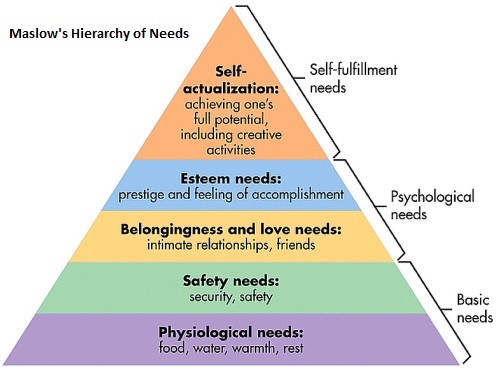 . .
. .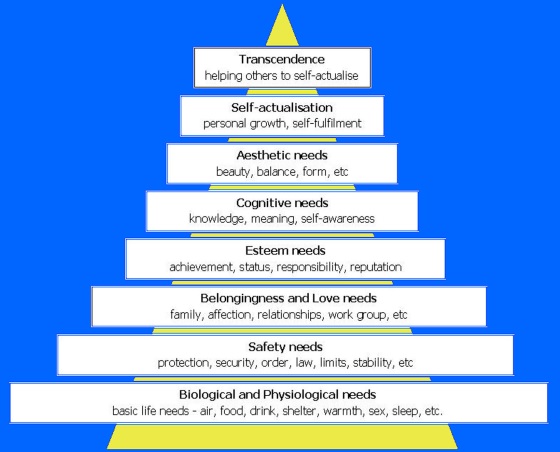
The point is to be aware that the mind and the ego are directly tied and the ego can be very damaging to your health and the health of others. The ego wants us to believe that the mind is all powerful and whatever it has been trained to believe is the absolute truth. We have all heard the term brain-washing, and most of us understand that term implies damage to someone's thoughts and patterns of habit. Thus it is important to keep an open mind and search for life's true meaning for all of us.
One attainable truth is that we as a human race can achieve a higher state of consciousness and that we can use our minds as a tool to help us get there. Just by considering this concept you have likely reached an awareness that you may not have had before. If you stopped reading this subject matter by now, then you have rejected this possibility as insane or nonsensical. But since you are still reading, try this awareness exercise. Think about how your mind reacted to being open and considered reaching new heights. Was your mind disturbed, amused, frightened or excited about this possible new truth? If you can understand this exercise then you just experienced "watching yourself, your mind, your emotions". You became aware that there is something else within our being that can connect us with ourselves and others that are also aware that we have this greater power that supersedes the ego, the mind, and allows us to find truth, joy and inner peace like we have never experienced before. You can practice watching your mind by catching yourself when angry or upset and wondering why you are so upset. What did someone do to you to make you so angry or anxious? Are your emotions justified or did someone push a "trigger" button that set you off? Perhaps you will begin to see that there is a higher presence, a higher awareness that can oversee your egoic mind and help you avoid becoming a victim to it. Once again, the point is that the mind is a tool. Without it you could not be educated to read or write. It is just a phase in our evolution, just like a computer has become a phase in our evolution. A computer is not you but it can help you improve your understanding of life and help you grow and become even more "human". Thus now that we understand our "internal computer" we can now understand that there is more to us that would not have been available until we reached this level of awareness.
This new awareness, new consciousness may be called our soul, our inner spirit (inspiration), our true being or something else. That is something we must discover together and perhaps it becomes our collective or universal consciousness? What we call it is not as important as the truth that we discover as we use it to spread peace around the globe and put an end to war and conflict. The mind can only take us so far. Our higher consciousness can lead us to world peace and prosperity.
The ego centered mind tends to be child like and wants what it wants, usually right now. Our higher self is patient, caring and tends to have a higher intelligence, both intellectually and emotionally. It is like the difference between a child throwing a temper tantrum and a wise person staying calm, cool and collected in the middle of a conflict or hostility. Which consciousness do you think will most likely find a peaceful resolution? The ego centered mind tends to believe that it is right and those that oppose them are wrong, thus they can justify criticizing, disrespecting, bullying, harming and even murdering others. The ego dominant mind does not stop to consider that perhaps it would be better to communicate, cooperate, try to understand their positions, or negotiate a truce or "peace treaty" rather than to just resort to threats and violence in order to get their way.
To reach this higher state of being, try experiencing and appreciating the beauty of nature, art, flowers and being grateful for a nice meal, fellowship with family and friends, and just being alive.
Modern schooling typically teaches students reading, writing and mathematics but does not usually teach peace, creativity, parenting, interpersonal communication techniques, marriage and enlightenment skills. Why is this? Perhaps it is because reading, writing and math are fairly easy to understand and can help people to make a living, but teaching peace, communication, relationship and enlightenment skills (creating a meaningful life) are much more difficult since our evolution in human development is still predominantly based around conflict and wars (our animal type survival instincts), which we understand quite well. It is time we stop merely surviving and start thriving. It is time we start living together in peace and prosperity. Perhaps the best way to achieve that is to transcend our current "fight or flight" mode of the ego centered mind and reach a higher, wiser level of consciousness that can provide us with that type of peace.
Ancient religion has given us insight to help us attain inner peace. Hinduism has the term "enlightenment", Christianity has the term "salvation" and Buddhism has the phrase "the end of suffering". There are likely many more terms describing ways to achieve peace in all religions. Perhaps we can use the knowledge from religious teachings, school and parental education and our own internal awareness to help us transcend our current level of consciousness and reach a higher, more peaceful level of consciousness. World peace will likely be the reward we receive from this transformation.
* In any journey we choose to undertake we must take the first step and shortly thereafter the next steps become obvious. Without the first step, the tenth and twentieth steps never become reality and we have no possibility of reaching our destination. Take this world peace website for example. If we hadn't started writing the first page (and re-writing the first page over and over again) then we never would have gotten to the insights we are posting today. We kept postponing the newsletter until we had more time, more money and more wisdom. Finally we just decided to start it, even though it wasn't really ready (in our minds). But looking back, it was exactly the right way to start it! One page, one sentence at a time until it took shape and the next changes, additions and revisions became amazingly obvious. Yes, sometimes the first steps may lead nowhere but as Thomas Edison wrote, "I learned 99 ways not to make a light bulb". He understood that both difficulty and perseverance were necessary components in the effort to reach a worthwhile goal.
* "Failure is simply the opportunity to begin again more intelligently." - Henry Ford
* "I know in my heart that man is good. That what is right will eventually triumph. And there is a purpose and worth to each and every life." - Ronald Reagan
* "Every man must decide whether he will walk in the light of creative altruism or the darkness of destructive selfishness. This is the judgment. Life's most persistent and urgent question is, What are you doing for others?" - Martin Luther King, Jr.
* "The value of life does not depend upon the place we occupy. It depends upon the way we occupy that place." - St. Th�r�se de Lisieux
* "Reading makes a full man, meditation a profound man, discourse a clear man." - Benjamin Franklin
* "Meditation is not a way of making your mind quiet. It's a way of entering into the quiet that's already there�buried under the 50,000 thoughts the average person thinks every day." - Deepak Chopra
* What is your purpose? What is your special talent? You have one! If you haven't discovered it yet, you will. Use it for good! Use it for peace!

How to give birth to the awakened state of mind? (Quotes from the book, "Chop Wood, Carry Water" by Rick Fields)
* "There is always great uncertainty when you don't know how to begin and you seem perpetually caught up in the stream of life. If you speak in terms of the person on the street they don't seem to have a chance because they are never really able to look inwards; unless perhaps they read books on the subject." "In fact, no one is excluded and all beings are candidates for Bodhisattvahood, anyone can become an awakened person." - Chogyam Trungpa Rinpoche
* "Having a proper attitude towards journey is essential. If we make a journey properly, then everything we encounter is considered part of it. We are fully involved in the process of journeying rather than being fixated on our destination. We are not looking for quick solutions, but are willing to be open, precise and thorough in relating with ourselves as well as all the facets of our environment - the weather, the scenery, the landmarks, and the obstacles or sidetracks along the way. In entering the path to enlightenment, we are beginning the process of transforming confusion into wisdom. But in order to make this journey, we must first acknowledge that we are confused and that our environment is chaotic. Beyond that, we must understand that chaos and confusion are perpetuated because we do not have the training to see things as they are." - Osel Tendzin
* "Modern education is competitive, nationalistic and separative. It has trained the child to regard material values as of major importance, to believe that his nation is also of major importance and superior to other nations and peoples. The general level of world information is high but usually biased, influenced by national prejudices, serving to make us citizens of our nation but not of the world." - Albert Einstein
* "Without an integrated understanding of life, our individual and collective problems will only deepen and extend. The purpose of education is not to produce mere scholars, technicians and job hunters, but integrated men and women who are free of fear; For only between such human beings can there be enduring peace." - J. Krishnamurti

* "When a man and women with significant spiritual and psychological affinities encounter each other and fall in love, if they have evolved beyond the level of problems and difficulties, if they are beyond the level of merely struggling to make their relationship 'work' then romantic love becomes the pathway not only to sexual and emotional happiness but also to the higher reaches of human growth. It becomes a context for a continuing encounter with the self, through the process of interaction with another self. Two consciousnesses, each dedicated to personal evolution, can provide an extraordinary stimulus and challenge to the other. Then ecstasy can become a way of life. Romantic love is not a myth waiting to be discarded, but, for most of us, a discovery waiting to be born." - Nathaniel Branden
* "I define love thus: The will to extend one's self for the purpose of nurturing one's own or another's spiritual growth." - M. Scott Peck
* "Love is not primarily a relationship to a specific person; it is an attitude, an orientation of character which determines the relatedness of a person to the world as a whole, not toward one object of love. . . . If I truly love one person I love all persons, I love the world, I love life. If I can say to somebody else 'I love you,' I must be able to say, 'I love in you everybody, I love through you the world, I love in you also myself." - Erich Fromm
* "The cost of a thing is the amount of what I call life which is required to be exchanged for it, immediately or in the long run." - Henry David Thoreau
* "Always leave enough time in your life to do something that makes you happy, satisfied, or even joyous. That has more of an effect on economic well-being than any other single factor." - Paul Hawken
* "Life's not the breaths you take, but the moments that take your breath away." - George Straight
* "Often people attempt to live their lives backwards: they try to have more things, or more money, in order to do more of what they want, so they will be happier. The way it actually works is the reverse. You must first be who you really are, then, do what you need to do, in order to have what you want." - Margaret Young
* "Intuition is one of the four basic psychological functions along with thinking, feeling,and sensing." - Carl Jung
* "It might seem that some people have more intuition than others but it is potentially available to everyone. Some people choose to develop it, others do not." - Francis Vaughan, Awakening Intuition
* "Almost anything you do will seem insignificant, but it is very important that you do it. Our actions in the world are the greatest test of our insights and growth. If we can apply our spiritual insights to helping the world around us, then perhaps we are really learning something. If not, our concepts, ideas, or personal growth are surely suspect." - Gandhi
* The idea of a society built on high ideals is hardly a new one. In Tibet there is a story of Shambhala, the city of the great lost enlightened society. The tenets of Shambhala were the natural qualities of compassion, generosity, mindfulness and wisdom that arise from minds at peace with their own passions and fears.
Printable version of "New Insights / Enlightnenment Tips" - Click Here

Happiness and Enlightenment are inter-related
This section will be an ongoing search for the true meaning of happiness throughout 2010 and probably longer. Although any section on this site can grow and change, this section in particular may always be changing and growing as we, and hopefully you, learn what happiness really is and how we can apply happiness to our lives. If happiness is truly related to peace then we should be able to turn this new found knowledge into power; the power to make peace a reality in both our lives and the lives of others. Somehow or other, it seems to make sense that World Peace is inter-related to World Happiness, similar to how inner peace is related to inner happiness.
With that in mind, let's us begin with what we've discovered so far.
* Happiness and enlightenment both begin by focusing on the present, on the now! Spending your time worrying about the future or upset about the past will tend to make you a very un-happy person. This doesn't mean that you don't plan for the future or learn from the past, it merely means that you don't spend the majority of your time there. Live for today, plan for tomorrow and learn from the past, but above all, live for today!
* Enjoy the journey! All too often we think that we will be happy when ......
We will find happiness when we achieve this goal or that one. When we win the championship sports match. When we find love, get married or have kids. When we get that big promotion. When we get a house, car, boat, or whatever. There is nothing wrong with wanting these things, and maybe they will bring you happiness (some more likely than others), but the point is to stay focused on the present and find happiness today. If you focus on the future and neglect the present, the chance of being happy later is greatly diminished. The saying goes, "If you can learn to be happy now, the forecast of being happy later is much brighter, with or without achieving your goal". Focus on the journey, not the destination.
* Happy people tend to focus on "downward comparisonitus. Un-happy people tend to focus on upward comparisons, otherwise known as keeping up with the Joneses. Happy people tend to have empathy for those less fortunate than themselves and they tend to volunteer to help others when they can. By trying to help those less fortunate than ourselves, not only do we begin to understand how "lucky" we are, but how wonderful it feels to make life better for those that don't have it as well as we do.
When we spend all our time and energy trying to catch up with our neighbors who "have it better than us" then the focus is all about the future again. This is a major problem in both happiness and enlightenment. There will always be people who you think are better off than you and those that have it worse than you. Spend more of your time trying to help the less fortunate ones if you want to find happiness and enlightenment. If you spend your time seeking riches just remember one thing, it is easier for a camel to pass through the eye of a needle than a rich man to enter heaven. That probably applies to heaven on earth as well. (:
* Happy people tend to be grateful for what they have. Many of the happiest people we know keep a "Gratitude Journal". They are thankful for little things and big things alike. They are happy to be alive, they are happy for their health, they are happy for their family, friends, and pets. They are happy for little things like food and water, for a sunny day, for a smiling face, for a world that has hope, compassion, love and peace. Similar to those that focus on downward comparisonitus, grateful people realize that they have been given a gift, and that gift is truly the present.
* Happy people tend to be spiritual in nature. This is not to say that non-spiritual people are not happy but rather that spiritual people tend to gain great comfort from the fact that a loving God is with them to help and guide them through their fears and struggles. Let's face it, sometimes when we feel all alone, life can be tough. Spirituality can help us through the hard times and be an incredibly uplifting force to us during some of our most difficult periods. It's hard to put into words, but you know it when you experience it.
* Happy people tend to love life. They tend to love their families. They tend to love their neighbors. They tend to love themselves. They tend to love the world!
*Gratitude opens the doorway to abundance.
* Life should be measured in smiles per hour, not miles per hour.
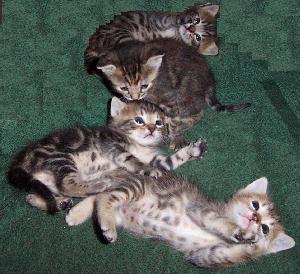
* Knowledge comes from learning. Wisdom comes from meditating on knowledge. Real success comes from applying wisdom (not just knowledge) in our day to day lives. In summary, knowledge comes from the left/logical side of our brain, knowing comes from the right/intuitive side of our brain and the two halves of our brain constitute our mind. Our mind has a tendency to talk to us incessantly. Our mind also has an ego that stops our higher self, our spirit, our true being, from gaining control over our mind and body. Once we learn to quiet the mind, our higher self has the chance to guide us towards enlightenment (which equates roughly to living in the moment, the present, the here and now).
We need the left brain to help us educate ourselves so that we may make a decent living for ourselves and our family, but perhaps more important is the education/use of the right brain in order for life to be rewarding and joyful! Only by utilizing the two halves together can we become whole. After learning how to utilize both sides of our mind the next step is to learn to quiet the mind so that we can attain wisdom and enlightenment. We must rise above the ego of the mind and find our higher self or true being. Thus the journey to enlightenment begins.One of the keys to happiness is to learn how to use our left and right brain together to create balance. The left (logical) brain must "partner" with the emotional/intuitive right brain. By looking at this "vase-face" picture, you can feel the shift from left (vase) to right (faces), and back again.

A few quick ways to shift to the right (creative/intuitive brain) is to meditate, observe flowers, enjoy artwork or play with children (enjoy time), start humming or singing, listen to music, enjoy the company of friends, family or animals, or start drawing, photographing, or painting.
A few quick ways to shift to the left (logical brain) is to look at your watch (recognize time) or perform mathematics in your head.
Those that spend all their time predominantly in one hemisphere (unless they are very well trained.) are very likely to have mental, financial, and/or emotional problems. Only by utilizing the two halves together can we hope to rise above the mind and attain the wisdom which will lead us to peace, happiness and joy. Notice how it all starts with one step after another? First we must understand, comprehend, and utilize the mind and perhaps soon after we have a chance to rise above our egos and free ourselves from anger, pain, suffering and confusion. Who among us doesn't want enlightenment! Raise your hand :)
* There are two main ways to solve a problem - Remove the cause, or Dampen the effect. Example, sewage in a river. Remove the source of the sewage, move up-river, or "treat" the sewage.
* Learn to enjoy life before you obtain wealth. If you are unhappy before you become "rich" then money will not bring you happiness.
* Yard by yard, life can be hard. Inch by inch, life's a cinch.
* Someday "Gross Domestic Happiness" may be equally important to "Gross Domestic Product" numbers.
* Insanity is inherited. We get it from our children. (:
* Improve the things which are in your power to improve and recognize that some things are beyond your current capacity to change in the physical world (but may be changed in the "mental" world ruled by our perception of life).
* How happy are you? How often do you smile? How many times a day do you laugh? How important is happiness to you? Do you blame others for your unhappiness or do you take responsibility to make sure you find a way to happiness? The point is that it is up to you to take control of your life and find what you need. Seek and you will find. Fail to seek and misery is likely to be your companion. Speaking of companions, are your friends upbeat and positive? If not you might want to seek some. (more on finding happiness)
* Why do some people have pleasant dispositions and others have negative dispositions? How do you switch from negative to positive? Recent research suggest that the brain can be rewired through meditation and other stress-reduction techniques. People who learn to handle stress tend to live longer, happier, healthier lives. Many of these "low-stress" individuals probably discovered good coping skills through good parental guidance, religion, self-help media and enlightenment training.
* "Watch your thoughts; they become words.Watch your words; they become actions. Watch your actions; they become habits. Watch your habits; they become character. Watch your character; it becomes your destiny." -Frank Outlaw
* "Even though you may want to move forward in your life, you may have one foot on the brakes. In order to be free, we must learn how to let go. Release the hurt. Release the fear. Refuse to entertain your old pain. The energy it takes to hang onto the past is holding you back from a new life. What is it you would let go of today?" -Mary Manin Morrissey
* Mental intelligence vs Emotional intelligence - Which is a better indicator of success? Mental intelligence may have a higher correlation to school and financial success but emotional intelligence is more important when seeking the ultimate prizes in life - happiness, peace, love and joy. The point is to be smart enough to know that you need both types of intelligence in order to truly succeed in life. Left brain thinking without right brain support is a little like playing soccer with only half of your team on the field. (" ... more on emotional intelligence)
* Is the mind capable of healing the body? Have you heard of Psychneuroimmunology? - Psycho immunology, Faith Factor, Colitis, Breast Cancer
* When a person labors not for a livelihood but for wealth, that person is a slave.
* "He does not possess wealth; it possesses him" - Benjamin Franklin.
* Have you heard the phrase: "No deep resentments are justified"? It means that by harboring resentment against others, you are really stopping yourself from obtaining peace. Get rid of the resentment, even if you think it's justified, and get rid of some troubling anger (and maybe a troubling ulcer.). The person you hold resentment against may be unlikely to change their ways but you can change your thoughts and feelings if you can find a way to solve "your" problem.
* It has been said that it is easier for a camel to pass through the eye of a needle than for a rich man to enter heaven. That is not to say a rich man cannot enter heaven but rather that he must be penitent.
* Be careful of making friends with angry people lest you learn their ways and become like them (and suffer their fate).
* On September 11th, 2001, we saw the dark side of humanity, although it is clear that this was an attempt to announce to the world the suffering and perceived injustice that was/is being felt. In the year following such a violent and destructive act, we saw the bright side of humanity as nations came together despite religious and political differences. One can only hope that trend continues.
* Without hope there is only despair. Without love there is only hatred.
* Most religions teach us that there will be a day of judgment.
* You are what you think all day long. Do you think good thoughts or bad ones?
* The realm of possibility is determined by the boundary of your imagination.

* Perhaps the most important thing in life is what you do with your time. What path are you following?
* There is more to faith than just believing in something. Your actions must reflect your faith or you really haven't faith at all.
* Think of anger, fear and hate at one end of a scale and peace, love and joy at the other end of the scale. Where do you currently weigh in?
* We've all heard the phrase, "Seek and you shall find". The real question is, what causes you to seek in the first place? How do you learn how to seek?
* Whoever has no rule over their anger is like a city broken down with no walls, which is likely to be the fate of those filled with such hatred and anger. Can you think of any examples of such individuals or groups?
* The earth becomes a more wonderful place when good people make an effort to turn our world into a paradise. What are you doing to create heaven on earth?
* Remember to stop and smell the "roses" along the way.
* "To get wisdom is better than gold, and understanding is more valuable than silver." - The Bible
* "Life's tragedy is that we get old too soon and wise too late." - Benjamin Franklin.
* Goals are dreams with time-lines. Have you established time-lines for your main dreams?
* Most people dream of success, some plan for it and then work their plan.
* Those who are slow to anger are stronger than the mighty. Those that rule their spirit are greater than those who rule nations.
* The more anger you have inside, the more likely you need help finding ways to get rid of the anger. Anger is usually a sign that tells you that YOU have problems. Angry people tend to blame others for their anger. The real problem is partly/mainly inside you. Admit it and you are half way to solving your problem(s).
* People sometime think that just because they are from a small town or raised in poverty they have little to contribute to society. It has been said "If you think small then your limits have already been established". The speed of the leaders determines the rate of change of society.
* Remember to help the poor. There was once a day in which you needed help.
* When you reflect back on your life, are you happy with the way you've lived it? When you reflect forward on your life, are you happy with the way you are going to live it? If not then you are going to need to change some things. You can't change the past but you can take control of your future. Make sure to have peace as a main element in your life. By focusing on peace, half of your battles will seem trivial. The search for peace and the search for happiness go hand in hand.
* When arguing with others, especially your spouse and friends, remember that just because you think you are right it doesn't give you the right to abuse them verbally.
* Recent news suggests that exercise is as effective at fighting depression as drugs. Yet another good reason to include exercise as part of our daily routine.
* Whoever is diligent in the opportunity at hand soon finds wider openings. Whoever fails to use today's opportunity finds less chance for advancement tomorrow. [also known as: "whoever has something will be given more and whoever has nothing will be deprived of the little they have."]
* Copyleft - The giving away of copyrightable material so that the world gets the maximum benefit. It's happening now with the Open-Source software revolution and with websites like World Peace Newsletter.com
* Be sure to play your music before you leave this earth. Find your passions and learn how to "sing".

* The cup can be half empty or half full, depending on your point of view. Which point of view dominates your waking thoughts; the negative or the positive?
* A smile a day keeps the doctor away. (:
* Is the mind capable of healing the body? Only for those that believe.
* There are at least three barriers to learning and achievement. Determine if any apply to you and find ways to overcome them. 1) Suggestive barriers put into your head by others or yourself. 2) Logical barriers that slow you down because of excuses like, "No one can do that, it's impossible". 3) Ethical barriers. These are things like "If I achieve too much success it might be unethical". How you earn success and how you share it with others is what reveals your true personality.
* Enlightenment has been defined as having a mind that is open to anything but attached to nothing.
Do you agree? Is it possible to be attached to nothing?
* When you are truly inspired (in spirit) things have a tendency to work in your favor. An example of this is someone who loves what they do regardless of the financial rewards it may bring them. When the rewards become more important than the journey, trouble likely lies ahead.
* How do you discover your passions? We may not have a solution to this question but we sense that the search may be almost as important as the answers. The sooner you start looking for your passions, the sooner you will find them and begin to live a richer, fuller life.
* Understanding is a wellspring of life.
* Information wants to be free similar to the way electricity wants to be free. Will the internet free up information (also known as "electrical energy" or thoughts) for the masses? The Open-Source revolution is now in full stride and has become a shining example of how the world wide web is allowing people to share with each other on a global scale.
* Over-working can be more harmful than under-working. Be careful not to become a workaholic. You must remember to stop and smell the roses.
* Sometimes it is better to cease fighting a losing battle than to continue. Although quitting is often associated with failure, knowing when to quit and when to use a different approach to solve a problem can be a sign of genius.
* Learn to live within the "system" while maintaining control of your "essence". If you lose sight of who you are, the system will overtake you.
* It has been said: Those of great minds discuss ideas, those of average minds discuss events, and those of small minds focus on other people (gossip). We all shift through these "classifications". How much time to do spend in each category?
* There are two main ways to solve a problem. (1) Remove the cause or (2) Dampen the effect. Now consider a third way - Change how you think and feel about the problem. The point is to look at the problem from different perspectives. Many people fail to realize that they CAN change their thinking.
* The positive stress from success can be almost as damaging as the negative stress from failure/depression if not dealt with properly. Get plenty of rest and be sure to spend time with family and friends.
* In the story about the cricket and the ants, the cricket played all the time and did not prepare for the rainy days ahead. By adequately preparing, the ants were able to enjoy the rainy days along with the sunny days.
* Wisdom that is not shared is wasted. Where do you find wisdom? Conventional wisdom suggests that we utilize universities, community colleges, study groups, libraries, the internet, churches, talking to our elders and by reading the most published book on the planet, The Bible, particularly the book of Proverbs.
* In the search for the truth you may find that some of the beliefs that you hold dear are wrong. Having an open mind is more important than clinging to every one of your beliefs. Think of the people that thought the earth was flat, or those that thought it was the center of the universe.
Use your intuition and let your conscience be your guide. The truth can set you free.
* If you pause to reflect on some of the best times in your life you might discover that you had a good balance between work and play during those periods. In order to return to the "best of times" find a way to balance your life.

* Keeping life stimulating is a key to good health and longevity.
* The support groups we have can make a big difference in our lives especially when times are tough.
* The digital age is making it so that people around the globe can communicate instantly and inexpensively. Many people think that communication is the key to a good relationship. Maybe the world wide web will help the nations of the world to communicate better and get along better?
* The speed of light may be the only constant in the universe. Everything else changes! Mr. Einstein observed that matter could be converted into energy just as energy was converted into matter (and anti-matter) when the universe was created.
* Admitting when you are wrong is a key to attaining emotional maturity.
* The satisfaction gained from achieving a goal is proportional to the effort used in getting there. Fear is probably the main factor that stops people from achieving their goals. Our inability to take a leap of faith is closely tied to our inner fears.
* The means we use to reach our ends are almost as important as the ends we've chosen. Ill-gotten gains seldom (if ever) bring long term happiness.
* The only person that can make you happy is yourself. Others can help but like many solutions in life, the answer must come from within.
* Sometimes a teacher, like a good parent, must be forceful and demanding but most of the time they need to be patient, nurturing and understanding. Even the wisest pupils were once ignorant.
* Mourning the loss of someone special helps us ease the immediate pain. Dealing with the emotions in the weeks and months afterwards helps us move on with our lives.
* A heart that has never been broken is incomplete.
* Half the battle in completing a worthwhile goal is getting things started.
* What does the global village mean to you?

LIFE TIPS: . The stages of life. What we all go through!
Although each of us is unique in thousands of ways, we all share the human experience of being born, living and dying. It is helpful to realize that we are not alone when it comes to dealing with life's challenges and setbacks. It is also helpful to understand that we all have needs that motivate us to act upon those needs and wants. Over our lifetimes our needs change and our motivation changes along with them.
Needs > Wants > Tension > Action > Success or Failure > Wants
The more tension we feel, the more likely we are to take action to reduce it. According to Maslow's hierarchy of needs, our first needs are "physiological": food, water, warmth, sleep and sex. These needs must be met for growth to occur. The next level of needs are "security" needs: protection from physical danger, financial security, nutrition and shelter. Once past these stages we move on to the "acceptance" needs: the need to be accepted by others, the desire to be popular. After learning to fit in, we try to fulfill our "esteem" needs: the need for self-confidence, status, prestige and power. If we make it past the esteem needs then we have the chance to self-actualize, something few of us have ever done. By self-actualizing, you fulfill your desire to become all that you are capable of becoming. You maximize your talents and share your success with the rest of the world. Some well known self-actualizers are Abraham Lincoln, Eleanor Roosevelt, Martin Luther King, Thomas Edison, Stephen Hawking, Gandhi and Mother Teresa. Who do you look to as a role model and why? What values does your "hero" hold in high esteem?
The following is a general time-table for stages that we all seem to go through. The better we understand the natural process of life, the better our chances of dealing constructively with life's little bumps. Try to determine the needs and wants of each stage in order to speculate the motivation (tension) behind the actions.
0-3: Basic survival. We eat, drink, sleep, absorb information, and are completely dependent on others. We are very impressionable in our first three years. Our brains are processing input, be it positive or negative. Research has suggested that children that did not receive love and affection at this age are much less likely to find happiness later in life. They are often unable to express love and affection as adults. They are less likely to develop a conscience and they tend to commit more violent crimes as adults.
4-6: Discovery period. We learn that we have needs and wants. We learn that siblings can interfere with our wants. Our creativity and emotions dominate over logic and rationality.
7-10: Schooling begins. We learn to read and write but now our creativity and emotions must be kept under tighter control. We discover friends and start to discover ourselves.
11-13: Mental and physical changes begin. By now, we have learned that we should keep our emotions under control, and creativity is all but dropped from most education programs. We notice the opposite sex and changes in ourselves. We begin to want our independence.
14-18: Our teen years. We are searching for our identity while battling acne, parents, siblings, friends, school, and puberty. These could be the easiest years of our lives but for many individuals, they are the toughest. Some start dating, most of us still fear the opposite sex. At times life seems unfair and against us. We are still young but struggling to be grown up and treated like an adult.
19-25: The real world. We leave home and either go to college (a 5 year educational playground before the real world), or get a job and possibly start a family. Real responsibility begins and we finally find out what it's like to run our own lives. By age 25, most of our values and thinking patterns are established. It takes great effort to change ourselves after this stage. For men, the sexual peak is passing but the instinctive drive still causes bad decision-making on occasion.
26-30: Still young but aging. We begin to realize we are not immortal and we can not abuse our bodies like we used to. Many of us have married and started a family by now. We can get caught up in the struggle to make ends meet and forget the importance of living. We still want to accomplish great things but time seems to be slipping away. Remember to enjoy life while you are still young and do not think that things will get better after you have made more money. Live life now while you still have youth, energy, health and lots of enthusiasm. When you get old and "rich" you likely won't have as much of these youthful qualities. Hopefully you will have wisdom and peace of mind after youth has left you. (:
31-35: Identity is established. By now we know who we are and what we want. How to get it may not yet be determined. Most of us have experienced the death of a loved one and perhaps drawn closer to family. Women that have not had children may fear that their time for having kids is running out.
36-40: Maturity sets in. Many of us are loaded with responsibilities by this age. We might have many debts and not enough income to do all we want. We start thinking about saving for retirement. Most of us have experienced some kind of traumatic illness or pain by now. Setting goals and planning for the future take on new meaning.

41-50: Mid-life dilemmas. We may find ourselves looking back on our lives with disappointment that we didn't accomplish more. We are still young enough to accomplish our goals and dreams but we have to act now. Our kids are going through their teens and moving out. The house starts to gets bigger and emptier. We start worrying about our health and may start exercising more.
51-60: Nearing retirement. The final years of working are getting closer. Financial concerns and health problems dominate much of our worries. We may have to deal with the death of one or both parents. The kids have gone and started their own families. Many of us move into new residences that fit a family without children. Grandchildren become idols to adore and spoil. We begin to give back to society.
61-70: Retirement starts. We've finally made it! No more work, only rest and relaxation. Why then after a year or so of R&R do we often feel bored and non-productive? Because for many of us we've reached our goal of just getting here. Our health may also be stopping us from enjoying our time off. We must set new goals to accomplish, just the same as any time in life when we reach our highest goals. Strive for the next level, don't just relish in past glory. Life's a journey, not a destination. Make it a fun journey because the destination is merely the end.
71-80: Continuing retirement. If we haven't started planning for our deaths by now, this is the time. We spend more and more time reflecting on the past, partly because these memories are the strongest. If our health is good, the seventies can be very rewarding due to the amount of wisdom we have acquired. This wisdom needs to find an outlet so that others may benefit.
81-90: Nearing death. For almost all of us, death is a very scary thing. We fear the unknown and death is probably the least known thing about the human experience. But it is part of the human experience and without it, life as we know it, would not exist! It's like a big physics equation that states that the amount of energy going into a system must equal the amount of energy leaving the system. For new life to enter, some must go elsewhere. Death is probably harder on the survivors than the person dying. By this age, death can actually be a welcome event, especially if our mental or physical health is poor. In a sense, life could become a curse if death did not occur when our bodies deteriorate.
91-100: More people are living to the grand old age of 100 and many do so because they were good to their bodies and good to their souls. With medical advances and better nutrition information these days, more of us will be able to enjoy our nineties. So start taking better care of yourself and keep setting new goals so that life is worth living.

* Do you have a "place" that is your Garden of Eden? If not then you might want to find one or create one.
* After accomplishing all your goals, then what will you do? Will those who fail to set goals ever have this problem?
* What is more important: How you spend your time or how you spend your money?
* How do you judge the success of others? Do you rate others by the amount of material possessions they have or by the amount of happiness they possess? Which measure is a better indicator of success?
* Buy the truth and then hold onto it with both hands and don't let go.
* We've all heard the phrase, "That's just the way the world works". The world would probably work much better if we wouldn't use this cliche as an excuse for not helping to make the world a kinder, gentler place to live and work.
* You will soon be hearing more about "The Gift Economy". It is our belief that capitalism and volunteerism are combining forces and creating a gift economy. The Internet is playing a large role in this transformation.
* See if you can determine the implications of this famous story. A farmer is out in the field sowing grain. Some of the seed lands on a footpath and gets trampled. Other seed lands on shallow soil with rock beneath. This seed starts to grow but soon dies for lack of nutrients. Other seed lands in thistle patches and is soon choked out. Still other seed finds fertile soil; this seed grew and produced a crop one hundred times as large as the farmer had planted.
* Some people hear the calling to become fishers for the souls of mankind. Why certain people hear the calling and others do not remains a mystery.
* Life is in the eye of the beholder. By changing your viewpoint you may change more than just your perspective. Life's what you make it.
* Meditation is often more powerful than medication. Which one of the M words is most likely going to help you attain enlightment? How much power is gained by merely trying to attain enlightenment?
* The love that wells within you, screaming for release, can drive your thoughts and actions, and help bring world peace.
* Remember to give gifts to people on days other than just birthdays and holidays. The gift of giving should come from the heart whenever the spirit moves you.(:

* When negotiating difficult situations it is wise to determine each party's stance on the following items: 1) What is it that each party wants to accomplish? 2) What is it that each party wants to avoid? 3) What are the crucial issues that are "non-negotiable"?
* Wisdom is a treasure that can turn darkness into light and cause one's face to shine. Both the heart of the prudent and the ear of the wise seek out knowledge.
* According to Proverbs 6:16, "These six things the Lord hates, Yes, seven are an abomination to him: A proud look, A lying tongue, Hands that shed innocent blood, A heart that devises wicked plans, Feet that are swift in running to evil, A false witness who speaks lies, And one who sows discord among brethren."
* In order to be the greatest, one must also be the least.
* Peace on earth, goodwill to all. Sounds simple yet it has proved to be amazingly difficult to accomplish.
* Do you believe that most people want to be good, honest and helpful? We do! People just need the proper love and guidance in order to get them back to the side of "good". People need to be reminded that there are much greater rewards for the good than for the evil ones in this world. Blessed are the good, cursed are the wicked.
* Have you ever wondered if there was something you were "destined" to accomplish during your lifetime?
* How do people judge you, by your words or by your deeds? When your words and your deeds conflict, does it disturb you?
* If you climbed to the top of a mountain in order to ask a wise guru just one question, what would you want to know?
* The quest for answers is almost as important as the answers themselves.
* Knowing when to relax and when to work may possibly be one of the things that separates genius from the average. By learning about the characteristics of genius we may be able to help ourselves "follow in their foot steps".
* Sometimes we must face difficult tests. How we prepare and react to these tests says much about our character.
* Relaxation techniques used while educating oneself can lead to super-learning. These techniques can also be useful for stress reduction, helping with sleep disorders, and creative brainstorming.
* Beware of fast riches. If you are not a happy person before you obtain riches, the money will not help you find what you need. Why do you think there is an abnormally high suicide rate among lottery winners?
* Faith that is not exercised becomes weak.
* Can you think of anything happening in today's society that could start a worldwide social movement?
* Sometimes creativity is spontaneous, other times we need to "force" ourselves to be creative. Being creative helps release us from ruts we may be in. Example: This newsletter has many spontaneous ideas but some of the recent insights came about due to "forced creativity" which helped get us past our "writer's block".
* The Teacher & the 5th Grader - Author unknown
* Everyday heroes are all around us. Are you one of them?
* Two new books to consider: "Emotional Intelligence", and "Extraordinary Minds". .book tips
* There are many types of genius. Most of us are aware of scientific genius but there are also artistic, philosophical, sociological, religious, athletic and many other types of genius. Mr. Asimov once wrote, "Luck is the layman's term for genius". Those who think that genius is a lucky phenomenon have eliminated their chance to become one.
* Have you ever wondered why it is better to give than receive?

* If you could give someone the most wonderful gift in the universe, what would it be? Would it be physical in nature or "spiritual"?
* A healthy mind, like a healthy body, needs regular exercise. Think of the mind as the body's most powerful muscle.
* Here is an exercise (albeit a bit bizarre). What is a thought? How much power does it have? Where does it come from? Is a thought more likely to come from an external source or from inside you? Can a thought be broadcast to others? Is a thought more powerful if it is written on paper? Is the pen mightier than the sword? Can mere thoughts transform us in ways that were previously unimaginable?
* Sometimes it takes a good cause to motivate people to take action. Other times it takes a hard fall.
* The company you keep says a lot about how you view yourself. Do you surround yourself with winners and positive individuals? Winners phrase their lives in the positive. They say things like "I can", "I will" and "I'll do my best". They treat others as they would like to have others treat them (they follow the Golden Rule).
* Momentum, when applied to the human spirit, can often cause unexpected outcomes.
* There is a fine line between arrogance and self confidence, similar to the distinction between lunacy and genius.
* Wisdom without compassion is like a body without a soul.
* Greeting the morning with a smile increases the odds that the rest of the day will be merry. Going to bed grumpy decreases the likelihood that you will wake up the next morning with a smile. Smiling has a strange effect on our mood. A smile seems to force us to feel better. When the smile turns to a giggle then watch out! You just might start feeling really good inside. Recent news suggests that laughter is also an effective pain killer. We can see it now - The doctor says to the patient just before operating, "This guy walks into a bar ...."
* Thanksgiving: What does this word mean to you? Are you thankful for what you have received? To whom do you owe thanks?
* To fight depression, try to figure out what is bugging you the most and then find solutions to those problems. Solving your problems will help bring you out of the depression.
* The more we Help others, the more we Help ourselves.
* Cultural differences can make it difficult for nations to understand each other. Understanding our differences helps us bridge the "culture gap".
* Sometimes the knowledge learned from unpleasant situations can advance society further than if the situation had never come up.
* Being a part of a community is being a part of life.
* A good way to keep an open mind is to occasionally challenge your own beliefs. People with closed minds reduce their chances of discovering exciting new realities.

* The truth of wisdom speaks for itself. Seek out wisdom as you would seek out food and security. Wisdom endures for all time, foolishness becomes as apparent as yeast in dough.
* Learning about different religions can lead to a better understanding of what makes people tick. We may find out that we are all peace loving people. Few religions, if any, promote killing and violence as the means to the ends.
* At times we can lose sight of our lives and let our lives run us. This website was designed to help assist people get back on track. Lack of awareness (ignorance) causes much of our suffering.
* Standing up for what you believe in can be a very rewarding experience. Conquering your fears is another rewarding experience.
* A good person brings forth good things from their storehouse; an evil person brings forth wicked things from their storehouse and from their mouth.
* Faith. It's more than a word, it is a way of life. Do you have faith in yourself? When will you take the leap?
* When geniuses stand on the shoulders of great people before them, brilliant advances are likely to occur. It has been suggested that geniuses see 10 aspects of a concept whereas the average person is lucky to see 1 or 2 aspects. This suggests that genius can perhaps be learned or at least improved upon with effort.
* Jung discussed three states of consciousness: Waking, Dreaming and Dreamless sleep. These three psyches are interconnected, interrelated and in a continuum with the rest of nature. The Gia principle seems to match up with this philosophy. We are a part of a very grand universe.
* How we handle tough times reveals more about ourselves than how we handle good times.
* What would you do if you had millions of extra dollars to help others? Who would you help first?
* The morals of a country are displayed by their leaders. Immoral leaders are likely to cause immorality in the nation.
* He who is slow to anger is better than the mighty. He who rules his spirit is stronger than those who rule cities. (Proverbs 16:32)
* We can not control the entire world. We can control our reactions. The distinction is important.

* Perception and Reality. Is there a difference? Click Here
* To forgive is divine. That also means it's ok to forgive yourself. In order to be good, we must sometimes let go of the bad in our past.
* If given a choice between all the money you could want and all the wisdom you could want, what would you choose? Choose wisely Grasshopper.(:
* The balance between work and play has profound effects on your life. Too much of either can cause serious consequences.
* Try not to be impatient. Travel steadily towards what is right and you will be rewarded.
* It is better to have little and to be good than to own an evil man's wealth. The good are generous with their gifts and loans to others, and their children are a blessing.
* Aristotle talked of 3 types of lifestyles - 1) That of pure enjoyment. 2) That of politics. 3) That of contemplation.
He believed that Acts and Moral Excellence are based upon pleasure and pain. It is on account of pleasure that we may do bad things and on the account of pain that we abstain from noble gestures. Those that flee in the face of pain are often cowards, and those that delight in others pain are often mean or base.
* The Needs of the many outweigh the needs of the few (or the one).
* Do Things for the Glory of the World, and Everyone is Rewarded.
* What is the cause of most wars? Poverty, Religion, Race and Politics. Lots of these ingredients in Asia, Africa and the Middle East. They either get help or ... (we don't care to ponder the consequences). Where would you place a poverty stricken nation on Maslow's Hierarchy of Needs? Are they more concerned about "Enlightenment" or where their next meal is coming from? What does death mean to them?
* Sometimes a question is better than an answer?
* Almost all religions have at least 3 temptations - Resist them or suffer the consequences.
Christianity has - Power, Economic and Spiritual temptations faced by Jesus.
Buddhism has - Fear, Lust and Social Duties as key concerns.
Islam has a ceremony in Muzdalifah where they collect pebbles to stone three pillars symbolizing the temptations of the devil.
* The Abrahamic Covenant reminds us that Abraham so pleased the LORD that he was promised to be the father of many nations who would multiply him exceedingly. That has indeed come to pass as both Christian and Islamic religions are tied to the bloodlines of Abraham as the father of both Ishmael and Isaac. Christians and Muslems are truly brothers with a direct relation, where in the bigger picture all people are brothers and sisters in a wonderful race, the human race. Regarding Abraham's offspring multiplying, both religions have grown to over 1 billion people.
* Keep your mind open and ensure freedom of the human soul.

* Every now and then, take time to build a snowman :)
* If you like short verses of wisdom, the book of Proverbs and the book of Psalms (esp. chpt 15, 37, 49 ..) are full of gems.
* Can the United Nations lead us to World Peace? What can we do to help?
* The Internet (technology) may save us from WWIII? It can "equalize" wealth among nations and teach the East the West's "technology" while allowing the East to teach the West a bit about the "soul". If we work together, we can all get smarter! Peace is what life is all about. Is it coincidence that the internet showed up about the same time as nuclear proliferation in Asia and the Middle East? Can we all get along? Only if we help each other.
* Intuition - A Key to Finding Happiness and you Already Have It. Use It! Unlock the Door. Click Here
* Learn to treasure life even on days when things go bad. Offset the negatives. Life is too short to be upset all the time.
* Laughs and Noteworthy Quotes. Click Here
* Excessive monetary wealth is usually related to greed and ego. It's not how much you earn that makes you wealthy. It's how much you give that determines "true" wealth. By this valuation system, Mother Teresa would probably be the richest person to have ever lived. Her gifts were truly from the heart.
* The Gift of Love is probably the greatest gift we can give. The gift of knowledge is another wonderful gift.
* Learn to view change as education - The Internet (by connecting to almost everything) will change our lives at netspeed. The Internet is more significant than most people yet realize. This free newsletter is just one example of how anyone can put "knowledge" online. The Internet must remain Open if we are to benefit from this vast database. We are in a time period unlike any other in our history! The universe is within our grasp.
* They know enough to know to learn.
* Competition is healthy and leads to innovation. A rising tide raises all ships.
* Negativity - Control it or negativity will control You. Anger indicates internal problems, calmness indicates peace.
* Do you love yourself? If you don't love yourself, how can you expect to truly love anyone else? Are you making it harder for others to love you?
* Find a way to see the forest when surrounded by trees - Discover the big picture.
* What is the Meaning of life? Why are we here? Where are we going?

Laughter is one way to cheer up in a hurry. It seems that when we really have a good laugh, all our troubles and problems seem less severe and our day suddenly becomes brighter. The following classified ads and insurance explanations are true, proving that fact can be funnier than fiction.
ADS:
Auto Sales - Buy a car from me - I'll eat a bug!
Auto Repair - Try us once and you will never go anywhere again.
Used Cars - Why be cheated elsewhere? Visit us first.
Used Cars - 100% financing. Drive home with absolutely NO CASH.
Summer Sale - Stock up and save. Limit one per customer.
Join us for the furniture drive for the homeless.
We do not tear your clothing with machinery, we do it by hand.
1st annual Animal Abuse Council Benefit pig roast.
Illiterate? - Write today for help.
Will swap wedding gown for 50 pounds of dog food.
Women wanted to assist magician with cut-off head illusion. Salary and medical benefits.
For women only - Free confidential pregnancy test.
Needed - Security officer. Must have shop-lifting experience.
Needed - Oral Surgery Assistant. No experience necessary.
Tired of cleaning yourself? Let me do it.
Introducing the superstore with unmatched variety and unrivaled inconvenience.
Grandmother will babysit 205 year old in her home.
INSURANCE FORMS:
An invisible car came out of nowhere, hit my car and vanished.
I had just been plant shopping when a hedge sprang up in front of me causing the accident.
The pedestrian had no idea which way to go so I hit him.
I was backing down the driveway, glanced at my mother-in-law and headed over the embankment.
I had been driving for seven years when I fell asleep at the wheel and had an accident.
The indirect cause of the accident was a short guy in a little car with a big mouth.
The telephone pole was approaching fast. I swerved left, then right, and then it hit my car.

MISCELLANEOUS:
Where do forest rangers go on vacation?
Why do we call them apartments when they are all attached?
Why is it called a TV set when we only get one?
Why isn't phonetics spelled the way it sounds?
Why isn't there mouse-flavored cat food?
Time heals all - except a leaky faucet.
Never overnight today what you can e-mail tomorrow.
The best way to add drama to your life is to wait until the deadline looms near.
Hear no evil, speak no evil, see no evil - good luck getting a job at a tabloid.
A young son says to his dad, "When I grow up I want to be in a heavy metal band". The father replies "I'm sorry son but you can't have it both ways".
Three things you don't want to hear from your computer guru -
1) Duuuuuude! Major bummer!
2) In layman's terms it's called the "Hindenburg effect".
3) Your problem can be fixed but we're going to need some duct tape, a butter knife and a car battery.
Keep smiling!
NOTEWORTHY QUOTES:
There are two things to aim at in life - to get what you want and after that, to enjoy it. Only the wisest achieve the second. - Logan Pearsall Smith
It may be luckier to not get what you thought you wanted and to actually get what you have, which once you have it you may be smart enough to see that it is what you would have wanted if you had known. - Garrison Keillor
* The better part of happiness is to wish to be what you are. - Desiderius Erasmus
I dream for a living. - Steven Spielberg
We discover and share knowledge that leads to peace. - World Peace Newsletter
If 5% of the population work for peace, there will be peace. - Peace Center, Theosophical Society in the Philippines
The speed of the leaders determines the rate of change of society.
Add a BOOKMARK to find World Peace Newsletter again.

Rolling towards Health / Happiness: . Table of Contents
The goal is to accomplish balance in your life. Think of it as 12 spokes on a wheel. If all aspects of your life are in balance, the wheel rolls smoothly. Get too many spokes out of whack, and the wheel becomes a square!
The "Left Brain" (logical) Spokes are: Work, Exercise, Nutrition, Chores, Learning, Planning
The "Right Brain" (emotional) Spokes are: Family/Friends, Relaxation, Intuition, Creation, Romance, Dreams
Notice how the categories differ. The type A personality spends most of their time using only their left brains. Where is the fun in that?! It seems that most of the enjoyable things in life are right brain dominant.
The key is to learn how to use our "two" brains together. We obviously need both sides in order to survive, but once again the critical word is balance! Looked at another way, if we only used our left brain (as a nation) then war and fighting would be dominant. If we only used our right brain then we would not have the ability to support and protect ourselves. Only by utilizing the two halves together can we become whole.
By looking at this "vase-face" picture, you can feel the shift from left (vase) to right (faces), and back again. By learning to control this shift we will take another step in our evolution (also see mental tips sections). mental tips & World Peace and Reality - an eassy on Peace

"Left" Definitions: Work (Job or Housework), Exercise (20 minutes +), Nutrition (4 food groups, 4-8 glasses of water, 2-3 alcohol drinks or less), Chores, Learning (Study, reading, internet research, informative TV, ...), Planning / Goals (5-30 minutes/day)
"Right" Definitions: Family/Friends, Relax (20 minutes +, lay on couch, meditate, bath, ...), Intuition (the sum of observation, perception, re-collection and contemplation), Create (Draw, paint, ..), Romance (time with significant other), Dream (Daydream, hope or analyze past dreams)
To make a daily chart to see how well you are rolling, draw a large circle on a piece of paper and divide it with 6 straight lines, all intersecting at the middle. It should look like a bicycle wheel with 12 spokes when finished. Write the first initial of a category, outside each spoke, ie. W-E-N-C-L-P & F-R-I-C-R-D
On a scale of low to high, the center being none, make a mark on each spoke that depicts the amount of effort you gave yesterday to each category. The outside of the wheel represents a lot of effort, the center represents minimal effort. After marking all spokes, draw lines to connect the dots and see how well you did. The larger and rounder the wheel, the happier and healthier you probably are! Date each wheel so you can compare your progress.
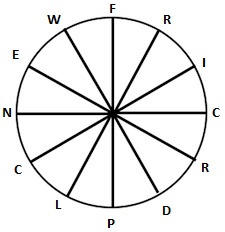
Another way of looking at the "Balance Wheel" you have just drawn is as a map of the brain. Is your wheel one-sided? If so, you have the possibility of improving your mental health by reading the mental tips sections. mental tips & World Peace and Reality - an eassy on Peace

Good Day / Bad Day Checklist: . Table of Contents
By reviewing the activities below and checking the ones you accomplished today, you can get a rating on the kind of day you've had. A score over 15 is a great day. 10 - 14 is a good day. Under 10, you need improvement. . . Did you:
Brighten someone's day?____ Smile/Laugh?____ Think positive thoughts?____ Help someone?____
Exercise?____ Clean?____ Eat Properly?____ Drink 8 glasses of water?____ Relax?____
Learn from a failure?____ Create something?____ Use intuition?____ Play?____
Time with significant other?____ Time with family?____ Time with friends?____ Time alone?____
Learn something new?____ Work on a goal?____ Have a success?____ Think about Peace?____
Count your blessings? _____ Pray/Meditate?_____
NEGATIVES: . . (subtract 1 for each check mark)
Yell at someone?____ Hold resentment against another (justified or not)?_____
Talk down to yourself?____ Pity yourself?____
Worry excessively?____ Over/under eat?____
Sleep poorly last night?____ 5 or more drinks yesterday?____
Hopefully you scored well but the real point of the exercise is to learn to focus on the positive aspects of life and count our blessings. It would be great if we all helped each other out, particularly when our personal skills can be applied to the challenge or opportunity we choose to undertake.Perhaps "an eye for an eye" could be interpreted as "when you save an eye you actually save your own as well"?

10 Rules for Success & 17 Principles of Personal Achievement:
by Napoleon Hill (1920), Author of "Think and grow 'Rich'; "Success Through A Positive Mental Attitude" & "Keys to Success: 17 Principles of Personal Achievement" (also known as the 17 Keys to Success). He also promoted the incredibly important concept of "the law of attraction and abundance". The funny thing about his "Think and Grow Rich" book, was that we at World Peace Newsletter did not really want to read this book because we don't really have a strong desire for great monetary riches. After finally reading the book (at the advice of friends), we were amazed at how much of this book is about "internal" riches. In a sense, it is helping us reach our "definite major purpose" of inner riches without requiring us to make a lot of money (and pay the life costs often involved in attaining a lot of money).10 Rules For Success:
1. Set your head and heart upon a DEFINITE MAJOR PURPOSE and go to work, right where you stand, to attain it; and begin NOW.
2. Adopt and follow the habit of GOING THE EXTRA MILE by rendering more service than you are paid for, thus enlarging the space you may occupy in the world.
3. Control your MENTAL ATTITUDE and keep it always positive and free from the spirit of defeatism.
4. Apply the GOLDEN RULE in all your human relationships, no matter what others may do.
5. Learn all that others have discovered in connection with your endeavors, occupation, job or business, and profit by their experience, thus saving yourself both grief and loss of time.
6. Be prudent with your diet, exercise regularly, and avoid dependance on drugs, alcohol, or tobacco.
7. Keep your dominating thoughts upon the things you desire and demand in life, and off the things you do not desire. (the law of attraction)
8. Learn to transmute your sex emotion into the attainment of your DEFINITE MAJOR PURPOSE, at will, remembering that this is a creative force of unknown and unlimited possibilities.
9. If you work for another person, do your work HIS WAY, not yours, and do it in a gratious, pleasing manner.
10.Instead of criticizing others (no matter how much they may deserve it) devote your time to the discovery of traits of your own which should be corrected lest they provide the basis of just criticism against you.
17 Principles of Personal Achievement (also known as the 17 Keys to Success):
1. Develop a Definiteness of Purpose.
2. Establish a Mastermind Alliance.
3. Assemble an Attractive Personality.
4. Use Applied Faith.
5. Go the Extra Mile.
6. Create Personal Initiative.
7. Build a Positive Mental Attitude.
8. Control Your Enthusiasm.
9. Enforce Self-Discipline.
10. Think Accurately.
11. Control Your Attention.
12. Inspire Teamwork.
13. Learn from Adversity and Defeat.
14. Cultivate Creative Vision.
15. Maintain Sound Health.
16. Budget Your Time and Money.
17. Use Cosmic Habitforce.
10 Rules for Success, ... Printer Friendly Page - click here
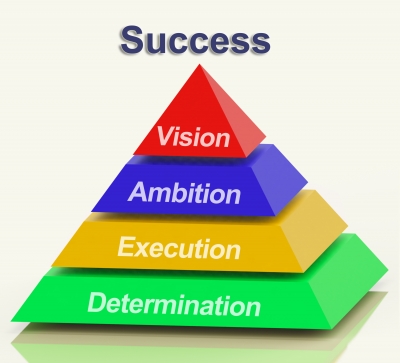
1. SHOCK & DENIAL-
You will probably react to learning of the loss with numbed disbelief. You may deny the reality of the loss at some level, in order to avoid the pain. Shock provides emotional protection from being overwhelmed all at once. This may last for weeks.
2. PAIN & GUILT-
As the shock wears off, it is replaced with the suffering of unbelievable pain. Although excruciating and almost unbearable, it is important that you experience the pain fully, and not hide it, avoid it or escape from it with alcohol or drugs.
You may have guilty feelings or remorse over things you did or didn't do with your loved one. Life feels chaotic and scary during this phase.
3. ANGER & BARGAINING-
Frustration gives way to anger, and you may lash out and lay unwarranted blame for the death on someone else. Please try to control this, as permanent damage to your relationships may result. This is a time for the release of bottled up emotion.
You may rail against fate, questioning "Why me?" You may also try to bargain in vain with the powers that be for a way out of your despair ("I will never drink again if you just bring him back")
4. "DEPRESSION", REFLECTION, LONELINESS-
Just when your friends may think you should be getting on with your life, a long period of sad reflection will likely overtake you. This is a normal stage of grief, so do not be "talked out of it" by well-meaning outsiders. Encouragement from others is not helpful to you during this stage of grieving.
During this time, you finally realize the true magnitude of your loss, and it depresses you. You may isolate yourself on purpose, reflect on things you did with your lost one, and focus on memories of the past. You may sense feelings of emptiness or despair.
5. THE UPWARD TURN-
As you start to adjust to life without your dear one, your life becomes a little calmer and more organized. Your physical symptoms lessen, and your "depression" begins to lift slightly.
6. RECONSTRUCTION & WORKING THROUGH-
As you become more functional, your mind starts working again, and you will find yourself seeking realistic solutions to problems posed by life without your loved one. You will start to work on practical and financial problems and reconstructing yourself and your life without him or her.
7. ACCEPTANCE & HOPE-
During this, the last of the seven stages in this grief model, you learn to accept and deal with the reality of your situation. Acceptance does not necessarily mean instant happiness. Given the pain and turmoil you have experienced, you might never return to the carefree, untroubled YOU that existed before this tragedy. But you will find a way forward.
Eventually, you will start to look forward and actually plan things for the future. You will be able to think about your lost loved one without pain; sadness, yes, but the wrenching pain will be gone. You will once again anticipate some good times to come, and yes, even find joy again in the experience of living. The main thing to realize is that you are not alone in feeling grief, sadness and pain. Almost everyone of us will experience grief, some more than others, but grief is as much a part of the human experience as love and happiness are.
Death leaves a heartache no one can heal, love leaves a memory no one can steal. ~From a headstone in Ireland
When you are sorrowful look again in your heart, and you shall see that in truth you are weeping for that which has been your delight. ~Kahlil Gibran
A human life is a story told by God. ~Hans Christian Andersen
To live in hearts we leave behind
Is not to die.
~Thomas Campbell, "Hallowed Ground"
While we are mourning the loss of our friend, others are rejoicing to meet him behind the veil. ~John Taylor
Tears are Gods' gift to us. Our holy water. They heal us as they flow. ~Rita Schiano, Sweet Bitter Love, 1997, published by The Reed Edwards Company
When someone you love becomes a memory, the memory becomes a treasure. ~Author Unknown
Perhaps they are not the stars, but rather openings in Heaven where the love of our lost ones pours through and shines down upon us to let us know they are happy. ~Author Unknown
The Seven Stages of Grief, ... Printer Friendly Page - click here
Dealing with Anger, Hatred and Grudges:
The way we deal with the negative emotions in our lives has a lot to do with the way we see ourselves and those around us. We all experience anger and hatred at times but how we handle these emotions differs greatly. We must learn to harness this energy instead of letting it slowly eat away at our inner peace. View anger as an opportunity for improvement not as a reason for aggression. Turn hours or days of negativity into minutes of revelation by learning from upsetting situations.
Anger, hatred and grudges are necessary signals that tell us we need to grow in certain areas. Without these emotions we would stagnate and die prematurely. These emotions motivate us to take action. If these feelings are not addressed and learned from, they tend to linger and cause negative thinking throughout the day. You've heard the saying "To forgive is divine", well the divine part is for the forgiver because they are freed from the negativity they were suffering from! By doing this you will also grow from the experience because to truly forgive you must have tried to understand what caused the anger in the first place. Was it something in yourself, a mis-understanding, an accident, or maybe there is no apparent reason. Even if your reasons are real and valid (although biased), you are the one stuck with the daily negativity. What kind of reward is that for being right?! Write down your feelings and release them on paper. Write down the facts and compare them to your feelings. Determine several solutions to the problem. Choose the best after waiting an hour or more to cool down. Learn from the tension and move closer to inner peace. Positive karma is more powerful than violence. Those who treat others badly suffer far worse then those who treat others with kindness.
Criticism can be healthy but it can also turn one into a judge and jury. Be careful not to raise yourself above others because of your beliefs.
Anger indicates internal problems regardless of who is at fault. Here's a tip to find out what "your" problem really is. Write down who or what you are angry with (your "external" problem). Now write down short-comings within yourself that relate to this "external" problem. These are the real problems you must solve if you want to be free of future anger. If we were perfect then we would not feel anger for others - we would have empathy and try to help others "see the light". The fact that we are angry proves we still have some growing up to do ourselves. Come to think of it, if it wasn't for anger, half the items in this newsletter would not have gotten written.
In summary, reduce your anger, stop your wrath. Don't fret and don't worry - It only leads to harm.
Dealing with Regrets, Failures, and Setbacks:
We all have our regrets, failures, and traumas in life to deal with. How we handle them shapes who and what we become. Our initial reaction may be anger, denial, fear, repression, indifference, depression, or acceptance. The key is to address the issues and grow from them, not simply repress them. We can learn more from failure and injustice than from success. Write on a piece of paper, the setback, your reaction and feelings, the possible causes of the setback and things that you could have done differently. Lastly, write down all you've learned from the experience. Learn to view difficulties as opportunities to grow stronger and smarter. If you look hard enough you will find the answers to your problems.
Dealing with Moments when you get very Upset:
What should you do? You may want to scream and yell and shout but you know that this is a reaction (and a bad one at that), not a response. You must find a way to calm down and sort things out before doing something you may regret later. The fastest and easiest way to "get a grip" on the situation is to write down what the left brain and right brain are thinking. The left brain has the "facts" and the right brain has the emotions and insight to the solution. Make sure you write down what you have to lose by making rash decisions. Let some time pass after writing down your thoughts and ideas for the subconscious to "review" them and suggest appropriate solutions or alternatives.
HEALTH TIPS: . Table of Contents
We know we are supposed to eat a balanced daily diet, drink eight 8 ounce glasses of water, and get at least 20 minutes of exercise, but how many of us realize the importance of proper REST? Go, Go, Go, that's our motto! No time to rest - I've got kids you know! Sound familiar?
The stress of fast paced living can take it's toll on our appearance, health, and happiness. Oddly enough, the positive stress from success can be almost as destructive as the negative stress from failure. This is a case of the left side of our brains (logical / time-oriented) being overtaxed and the right side (creative / emotional / intuitive) under-used. The body runs in high gear until it finally breaks down.

The Solution? Slow down! You don't have to stop and smell the roses, but at least slow down enough to notice them! (Did you?)
Life is a journey, not a destination!
Get at least 15 minutes a day to yourself to unwind. Here are some ideas of how to spend those 15 minutes per day. Start Today!
Meditate ... Take a slow walk ... Eat lunch at the park ... Take a nap ... Take a bubble bath.
Play with a train set ... Build a model car ... Listen to music.
Read a book ... Draw or Paint ... Quilt or knit ... Reflect on good times in your life.
Sit on the porch ... Lay in the sun ... Snuggle with a pet ... Hug someone.
Depression hits all of us during our lives but for some it can become an illness that can shatter lives. Depression is hard to understand but it seems to be related to lack of success and boredom, among many other factors. One way to combat depression is to develop a personal achievement list (click here) and continuously add to it. You may find out you have more going for you than you thought. Other factors that you can control to reduce depression are: good diet, proper exercise, good sleep habits, bright lighting, positive thoughts, a variety of hobbies, goal setting, continuous education and non-excessive alcohol.
Sleeping Tips: . Table of Contents
About 1 in 3 people in America has a sleeping problem. This in turn causes numerous sick days and a general feeling of fatigue and depression. Sleeping is one of our bodies way to re-energize and heal itself. It also connects us with our subconscious mind and provides us with insight not normally available during our conscious hours. The amount of sleep people require varies by age and health but most people need between 6 and 9 hours of sleep per 24 hour period.
The following tips are fairly specific, but proper sleep comes when the entire body and soul are in balance. See "Rolling towards Happiness" above for more details.
Go to bed only when sleepy. If you can't sleep, or if you wake up in the middle of the night, then get up for a half hour and write about whatever is keeping you up. You can throw away what is written later if you like but get it on paper. Often we don't even know what is bugging us until it blurts out on the page. It's easier to solve problems that become visible to our eyes, and get out of our sometimes muddled minds.
Use the bed for sleeping only. Don't watch TV or worry in bed because you need to learn to associate the bed with sleeping.
Set a regular time for waking. This helps sets the biological clock for the onset of getting sleepy. Avoid naps or keep them under 30 minutes. Sleep as much as needed to feel healthy but avoid excessively long periods in bed which usually means light, fragmented sleep.
Running a fan or air cleaner can mask noises that would normally awaken light sleepers.
Hunger, hot or cold temperatures, nicotine, coffee, and alcohol, all make sleeping more difficult. Regular exercise will deepen sleep, occasional exercise will not. Sleeping pills may help on occasion but regular use may intensify sleeping problems
Empty your bladder before going to bed so you don't have to get up to use the restroom in the middle of the night.
For those with back problems, we suggest you learn more about Lordosis (the correct curvature of the back).
Allergy and Asthma Tips: . Table of Contents
Over 30 million people in the U.S. suffer from allergies and some 10 million suffer from asthma. Our lungs naturally constrict when exposed to allergens such as heavy smoke, pollen, dust (mites), mold, fumes, sprays, animals, cold air, humidity, foods, stuffed animals, etc.
In allergy, and especially asthma sufferers, the bodies immune system reacts in an unusual way. Sneezing, wheezing, sniffing, swelling, tearing, and fatigue may occur. About the only way to sleep is to sleep sitting up or with head elevated which causes neck and back pains the next day. Basically you can't breathe very good, your nose hurts, you can't sleep and you feel awful.
There is hope! By following several steps you can reduce the severity and frequency of these attacks. Just by learning to breathe properly can reduce sick days from 80/year to under 20/year. By drinking eight 8 ounce glasses of water each day, mucus can be expelled easier.

Step 1: Discover which Allergens (or combinations) cause you to have attacks. Keep records with dates and circumstances of the attacks. Once determined, get medical advice on the proper medications for these allergens and try to reduce or eliminate exposure to them. Stay inside during pollen season, avoid sick relatives and crowds, clean humidifiers frequently, use air cleaners, use a paper mask when dusting or in heavy pollen areas, keep your home dust and mold free.
Step 2: Stay Healthy! Eat properly, drink lots of fluids, get adequate exercise, and take care of your back and neck. Massages, acupuncture, or chiropractic help may be useful to alleviate tension and help keep the spine in line.
Step 3: Get plenty of rest. Most respiratory suffers already have sleeping problems so getting lots of rest is even more critical. Short naps of even 10 - 20 minutes can be helpful to refresh your body enough to fight off attacks or reduce the severity of them.
Step 4: Use medications as instructed. Many medications must be taken in the proper sequence and time frame to be effective. Don't stop taking or change your dosage without consulting your doctor. Sudden withdrawal without allowing the body to adjust can cause serious medical problems. If you miss a dose, don't double-dose, but do take it immediately and get back on your regular schedule. A pocket flow meter can help you determine lung conditions.
Step 5: Maintain balance in your life. Stress can cause a major factor in attacks. It is very possible that stress alone can induce attacks. Thus it is important to strive for a balance that will reduce the amount of stress and increase the amount of happiness in your life. The main activities we need to balance are divided into left and right brain activities.
For those with back problems, we suggest you learn more about Lordosis (the correct curvature of the back).
Left Brain (logical): Work, Exercise, Nutrition, Chores, Learning, Planning
Right Brain (emotional): Family/Friends, Relaxation, Intuition, Creation, Romance, Dreams
Not everyday are you going to succeed in balancing all these activities but by realizing that you are missing out on some of them, you can strive to breathe easier in the future.
Quick tips to reduce attack severity.
Stay calm and practice good breathing techniques. Breathe in slowly through your nose and out through puckered lips (as if whistling). Whether suffering an attack or not, this is just good breathing technique.
Use your medication as soon as the signs of an attack are noticed. These signs may be fever, chills, chest tightness, shortness of breath, or change in mucus.
Get rest and stay relaxed. If the medication does not help, or if the attack worsens, contact your doctor or local emergency clinic. Some attacks can trigger another reaction that could be much worse.

NUTRITION TIPS: . Table of Contents
According to the USDA, we should eat the following food servings each day:
6-11 Bread, Cereal, Pasta, Rice .... 3-5 Vegetables
2-4 Fruits .... 2-3 Milk, Cheese, Yogurt
2-3 Meat, Poultry, Fish, Nuts, Beans, Eggs
Minimal: Fats, Sweets, Oils
What is a serving size?
Bread: 1 slice, 1/2 muffin or bagel, 1 oz cereal, 1/2 cup cooked cereal, pasta or rice.
Vegetable: 1 cup raw, 1/2 cup cooked or cut, 3/4 cup of juice
Fruit: 1 medium size raw, 1/2 cup sliced, 3/4 cup juice.
Milk: 1 cup milk or yogurt, 2 oz cheese.
Meat: 2-3 oz cooked lean meat, 1/2 cup nuts or beans.
Remember to drink six to eight 8 ounce glasses of water. Coffee, alcohol and sickness cause extra dehydration.
FITNESS TIPS: . Table of Contents
Tips for Losing Weight:
There are several things we can do to lose weight and keep it off.
The key ingredients to weight lose are: Less fatty foods, red meat & sweets; Less alcohol; Regular meals; Regular exercise to reduce stress; Stop eating before feeling full; 8 glasses of water daily; Family support.
Losing weight is not a short term solution. The goal is to lose 2 pounds a week until our optimum weight is achieved. By then, we become conditioned to eat properly and maintain our new weight. We all have good days and bad days, the goal is long-term conditioning.
Start becoming more active. Walk during lunch and whenever possible, take the stairs instead of the elevator, stretch in the morning and during breaks, do push-ups, sit-ups or squats, stretch while watching TV or surfing, play golf, tennis, swim, bike, hike or dance. Figeters burn up to 100 - 500 more calories daily than non-figeters, so start bouncing your knee and tapping your toes. Muscles take up less space than fat, giving the appearance of being thinner, besides being healthier for the body. For those with back problems, we suggest you learn more about Lordosis (the correct curvature of the back).
Eat vegetables, fruits, breads, cereals, pasta and nuts as snacks. Eat smaller portions of high fat foods and eat slower. Stop eating before you are full because it takes 15 - 30 minutes for the stomach to tell the brain to stop. Serve a light appetizer 15 minutes before dinner to start the stomach's "clock". Don't let yourself get too hungry between meals. Ask yourself, am I really hungry and if so, is this what my body needs?
Many people eat in response to stress or simply out of habit. Chart your eating habits for several days and see if this applies to you. When do you eat and why? Deal with the stress or learned habits and break the connection to over-eating.

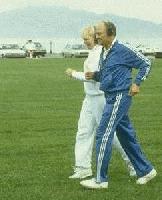
Tips for Reducing Eye & Wrist Strain (computeritis):
Look away from the monitor as often as possible. Focus occasionally on objects far away. Remember to blink regularly, avoid staring. Sit up straight. Change your distance to the monitor on occasion to change your focal point. Watch out for "sty in the eye syndrome" from staring at your monitor too long (and numerous other factors). A sty is essentially a pimple on the underside of the eyelid that irritates the eye. Eye drops or flushing the eye gently with water will usually eliminate the problem within a day or so. Until we develop better technology monitors, this may be part of the price we pay for knowledge and digital entertainment.
Adjust: The height of the keyboard or monitor, The angle of the monitor to reduce glare, The height of your chair, The distance to your monitor, The brightness and contrast of the moniter, The internal speed of the monitor.
Purchase a glare shield, wrist pad or "thermal" wrist wrap.
Tips for a Healthy Back: . Table of Contents
Most people believe that when they have back pain they have "slipped a disk", but usually its a strained muscle or ligament, or wear and tear on the joints themselves. The spine is really a bunch of disks that fit together like a jigsaw puzzle. Our stomach and back muscles keep them in line. The stomach muscles need to be strong while the back muscles need to be stretched. "Curls" with barbells and partial sit-ups are good for the stomach muscles and toe (knee)-touches can gradually stretch out the back muscles, but don't over do it. Let strained or torn muscles heal before exercising again. Emotional stress can cause back pain because it generates muscle tension and cramps. Stretching, sitz bathes or massage can reduce muscle tension. Excess body weight pulls the spine out of alignment because the body's center of gravity is shifted away from the spine. Too much exercise can strain muscles and cause cramping.
Maintain strong stomach muscles .... Sit upright and avoid slouching .... Avoid sitting for more than an hour at a time, take quick breaks .... Keep one or both legs elevated using a foot stool or box .... Support your lower back with a cushion or lumbar support .... Avoid sliding forward in your seat .... Slide forward in chair before standing to keep your spine straight.
Lift heavy loads close to your body .... Bend your knees, keeping your spine straight and let your strong leg muscles do the lifting .... Avoid bending and twisting simultaneously .... Push and pull with your leg muscles, reaching forward with the arms, not the back.
Avoid driving for more than 1 hour at a time by taking quick stretch breaks .... Keep your legs bent so that your knees are above your hips .... Adjust the seatback to avoid slouching.
Sleep on your side with knees bent .... If sleeping on your back, put a pillow under your knees .... Avoid sleeping on your stomach.
Reasons to Exercise:
1) The effects from exercise last long after exercising has finished. One pound of fat has over 3000 calories. Walking or jogging one mile uses only about 100 calories. Fortunately, the body continues to burn off calories at a higher rate than if you had not exercised.
2) Without exercise it is nearly impossible (and un-healthy) to lose weight or avoid weight gain. The body needs the process of consuming calories and burning them off, but if too many are consumed, or not enough burned off, weight gain and cardiovascular problems are just some of the ill effects.
3) Strong stomach muscles play a large role in a healthy back!
4) A healthy body usually means a healthy heart and a longer, healthier life.
Stroke Early Warning Signs: . Table of Contents
The chances of surviving a stroke are greatly improved if the warning signs of a stroke are noticed and acted upon within 6 hours.
The key signs are: Sudden weakness / numbness on one side of the body; Sudden dizziness or loss of vision in one eye; Loss of speech, difficulty understanding speech; Sudden severe headaches; Unsteadiness or falls.
If any of these conditions are noticed contact your doctor or local emergency clinic immediately.

MENTAL TIPS: . Table of Contents
The brain is the most powerful tool we possess but yet we still don't understand it, let alone know how to harness its power. Fortunately through medical research we are beginning to unlock some of the mysteries. There is proof that the brain can be strengthened with proper "exercise" and stimulation.
We know that the brain is divided into two halves, the left and the right. The left brain controls the right side of the body and is mainly responsible for speech, logic, time and rationality. The right brain controls the left side of the body and is responsible for our emotions, creativity, intuition, spatial awareness and analogical perceptions (metaphors). The halves communicate via a large bundle of nerve fibers called the corpus callosum.
For graphic purposes we compare the left brain to our consciousness, and the right brain to our subconscious or sleeping state. When we sleep we have no concept of time or logic. Our dreams can be very emotional, insightful and quite revealing (through metaphors). When we awaken, most of us go back to our left "responsible" brain, but we can choose to use both sides of our brain on command, if we learn how! Some do it naturally, artists can go too far right brained, and engineers have a tendency to depend too much on the left brain.
There is evidence that by constantly stimulating the brain, that is, creating new neural pathways, the risk of Alzheimers disease can be reduced. As we age, brains cells die every day. By creating new neural pathways we can stay sharp and productive. There are many ways to exercise the brain, the goal is to balance the exercise so that both sides benefit, creating a power stronger than either side could generate alone. Perhaps we are a bit nervous about this power and how it will change us. On the other hand, without change there can be no growth, without growth there is only death.
Right side exercises: Drawing, painting, ceramics, meditating, creating, loving, hobbies, coloring, problem solving by intuition, playing, etc. Methods to shift quickly to the right, intuitive hemisphere:
Visualizing, daydreaming, responding to body language, rejoicing, doodling, sketching, humming, singing, laughing, crying, awareness of smells, sounds, colors and emotions around you, using the phone with your left "sympathetic" ear, finding possible solutions via wild, spontaneous brain-storming.
Left brain exercises: Learning, planning, setting goals, problem solving by deduction, studying, reading, exercising, browsing, etc. Methods to shift quickly to the left, logical hemisphere:
Taking notes, organizing, planning, prioritizing, looking at the clock,awareness of time, analyzing body language, comparing, judging, deciding, writing, using the phone with your right "analytical" ear, finding possible solutions by relating all the facts.
If we utilize both halves of our brain to help us solve problems it is similar to a debate. We get insight from our artistic side, which the engineer in us can compare and contrast to the list of "known" facts. Just remember that we seldom have all the facts and some of the ones we have may be wrong. It seems obvious that a strong right brain is very important to success in life.
Do not underestimate the power of the mind. Knowledge is power.

OUR THREE POUND UNIVERSE, OUR REALITY - THE BRAIN:
Our brain began development about 500 million years ago in a small animal in the sea that barely had enough neurons to orient themselves to light. Eventually fish evolved showing further growth in the brain stem. The brain stem is responsible for our bodies involuntary functions such as breathing, sleeping, heart-rate, eating, re-production, etc. It is also responsible for much of our behavior when we are young.
Sea-creatures evolved to land animals and the brain grew further. The dinosaurs had what we call the reptilian brain which is quite similar to the human brain stem of today. When mammals showed up, the cerebrum showed up and with it emotions and the capacity to learn. This mammalian brain, also known as the limbic system, from limbus or cap (around the brainstem) evolved until it too was covered by the "thinking cap", the cerebral cortex.
With the evolution of the cerebral cortex about 5 million years ago, humans were born and learning rapidly. Our first brain weighed only about 1 pound. As we evolved our cerebral cortex folded in on itself in order to maximize the surface area, thus enabling greater blood supply. Since its humble beginning over 500 million years ago the human brain now weighs in at 3 pounds and consumes 40% of the oxygen in our blood. The brain has grown approximately 3-1/2% in the last 100 years which may indicate that the brain is growing at a faster rate than we have previously experienced due possibly to the increase in availability of printed and digital information (knowledge). Knowledge causes the brain to grow.
If we are to harness the power within ourselves and continue to evolve we must first realize that we posses three separate brain regions (the reptilian brain, the mammalian brain and the cerebral cortex) each of which is somewhat independent and has its own subjectivity and memory.
The thinking brain can be viewed as an electro-chemical organ that runs on stimulus (external and internal) and processes the input in a systematic and reverberating manner. The cycle goes something like this:
Input through Senses > Emotions > Muscle Control > Memory > Learning
Under a MRI scan, the cycle can be seen flowing through the different areas of the brain responsible for emotions, muscles, learning, etc. The thinking process combines several distinct brain areas and if one or more of these areas is out of whack, our entire thought process and safety could be in jeopardy. To improve our thinking (learning process) we can work on things like improving our perception skills, learning to deal with our natural emotions and improving our memory skills.
UNIVERSAL CONSCIOUSNESS - The 100th Monkey Effect?
The Hundredth Monkey Effect is based upon the principle that after one monkey on an island discovers how to wash a coconut in the water to remove sand and dirt, the rest follow suit until the last, or hundredth monkey, finally learns this improved method. At that point, monkeys on other islands become aware of this knowledge without "direct" communication. This same effect has happened repeatedly in human history, where inventors have simultaneously discovered inventions that others around the world were contemplating at the same time, or where mothers somehow know when one of their children is in pain hundreds of miles away. The thoughts become energy that is available to others that tune into this energy field, or universal consciousness. It may occur more often when we are sleeping or in "hypnotic" or meditative states than during our normal waking state. If we already tap into this energy field without being consciously aware think what we will be able to do if we exercise our minds and use this incredible resource to our best advantage! When you stop and think about it, you are adding to the energy field right now by merely reading this information on peace. Thank you, this is how it will spread. Who will be the 100th Monkey for Peace?
"If 5% of the population work for peace, there will be peace."
Quote from Peace Center, Theosophical Society in the Philippines

DESTINY TIPS: . Table of Contents
Do we control our Destiny? Only if we choose to.
Destiny is a word that seems to be tied closely to our concept of time. Whether we have a destiny or not depends in part on whether past, present and future co-exist simultaneously. The other part depends on whether or not we can change a "pre-determined" future with individual or group actions. It probably comes down to what you believe in. If reality is dependent upon our individual perceptions then the answer to this puzzle lies deep within each of us. What do you want to believe? The implications of this puzzle are somewhat hard for us to understand but the most obvious to us is that in order to change reality all you really have to do is change your perceptions. Can it really be that simple?! We are counting on it. This newsletter was developed to tip the scales in favor of world peace. The internet just happened to show up at the right time to enable us to make this information available for free to millions. Was it destiny? Is it destiny that you are pondering these questions?
MEMORY IMPROVEMENT TIPS: . Table of Contents
The brain processes information in a cyclical fashion that relies heavily on memory for storing and retrieving data so that we may analyze it. If we fail to store information properly it creates problems for us when we try to remember and apply the information. Most of us have heard the phrase "garbage in - garbage out" applied to computers, well it also applies to us in more ways than we realize.
Much of the data we want to store comes through our senses. We hear something, see something, feel something and maybe we remember it later. To improve our memory we need to absorb as much from our senses as possible and store these sensations along with the information we want to remember.
Example: To remember a phone number easier, write it down (muscular), say it out loud (auditory), look at it (visual), relate it to numbers you know (learning), smell and feel it (just kidding). By doing this we create more links to help us remember. Maybe we can't remember an event at first but then we remember a smell or a feeling we had and the whole experience comes back to us.
Quick tips: Repeat a persons name within 30 seconds of learning it. Repeat things out loud several times that you must remember. Write down notes. Associate names to faces by picking out key feature and linking it to the name, ie. Bob is 6'4" > Big Bob. The more time you spend thinking about what you want to remember, the better the chance you will remember it. It takes anywhere from 5 seconds to 30 seconds to shift information from short term memory to the long term memory section of the brain.
DRAWING TIPS: - Release the Artist Within & Increase Intuition Simultaneously
The action meaning of the word "drawing" should really be defined as the combined actions of "sensing" and "expressing", or simplified further, seeing and muscle control. Without seeing, really seeing, it is almost impossible to draw well. But as soon as we learn to SEE, the light goes on and drawing can become amazingly simple. A flag is no longer a rectangle, but rather a diamond shaped series of curvy lines. The upper corners of a room are not ninety degree angles but rather much wider, depending on your "perspective"! Drawing your thumb and forefinger takes five minutes instead of ten seconds if you see and draw all the wrinkles and creases that you miss in a ten second sketch. In fact the more straight lines you draw, the less you are actually "drawing". Do you see that drawing is related to sensing and seeing, which is in turn related to perception and intuition. Sherlock Holmes was a genius because he was an artist in perception. Maybe it's time to see what you've been missing.
Drawing is also one of the best ways to shift to the right "intuitive" brain and shut the left "logical" brain out for a while. You can feel the shift when the right brain takes over and you lose track of time and forget responsibilities temporarily. You can feel the shift back to the left when you finally look at the clock and come out of your "trance". You'll also see the shifts in your drawings, where some areas are better than others. Drawing is a great problem solving technique too. Forget the problem while drawing and often the solution appears before the drawing is finished.
By looking at this "vase-face" picture, you can experience the shift from left (vase) to right (faces), and back again. By learning to control this shift we will take another step in our evolution. In a way it's a bit like searching for the holy grail.
 . Jonathon Earl Bowser -
. Jonathon Earl Bowser -
Use a pencil and be prepared to do a lot of erasing (at first). The goal is to end up with accurate drawings when we are done, not on the first sketch.
Perception of edges and contours: Start by drawing your bent thumb and forefinger. See and draw all the cracks and crevices. Do not draw any long straight lines. Do not think of it as your hand but as a series of short lines. Draw very slowly. The idea is to see with your right brain for perhaps the first time. You can even try not looking at the paper while you are drawing, just to get the feel of it. Notice how much detail there is on your hand - freckles, hair, patterns in the skin, rough spots, etc.
Perception of angles, parallel lines and proportions: Now we are ready to draw an upper corner of the room. Choose a corner that has a door near it. Notice how the corner does not appear to be 90 degrees because you are looking at it from an angle. That is how you must draw it, draw what you see - not what you know. The vertical line in the corner should be vertical on the paper and the door's edges will be parallel to both the ceiling line and the wall line. To understand proportions, look outside at two trees, one close and the other farther away. Hold your thumb up at arm's length and measure the height of both trees. One may be one thumbs length and the other may be two thumbs length tall. When you draw the trees, one must be half as tall as the other.
Perception of negative / empty space: One of the keys to good drawing is the perception of empty space. Find a standard four leg chair and draw the empty space (square) between the seat and the back. Now add the seat and legs, noticing the empty spaces between the legs. Try to find other examples of empty space near you. It is sometimes easier to draw what is not there than what is.
Perception of light and shadows. If you put a red rose in a dark room, what color is the rose really? Once again we know it's red but it appears black in a dimly light room so that is how it should be drawn. To learn shadows, find something to draw and place it near a lamp. Notice how the shadows connect to the object and the pattern they create.
Perception of composition. The final step in a drawing and a chance to add any finishing touches. The goal is to make sure everything is in proportion and that the drawing creates the mood you want. Is it complete? Do the key features grab your attention as intended?

ART TIPS: . Table of Contents
What does art tell us about the culture that created it? How is a true work of art defined?
A work of art is often defined by its four main components - the Style, the Historical Significance, the Purpose and the Iconography. A true work of art ties all these components together so that the the end "product" has a greater impact than the sum of the parts have individually.
The purpose of the artform can be as important as the style, just as the historical significance and the iconography (or likeness to events/objects) can reveal hidden stories embedded in the work of art.
To discover what art tells us about the culture that created it we merely have to dissect the four components of any artform and do a little reverse engineering. Was the purpose of the artform religious in nature or purely a creative endeavor? Do the images in the artform resemble normal individuals, god-like individuals or objects familiar to the time period? Is there an unusual or new style being presented that has not appeared prior to this artform? Is there any historical significance about this artform, be it the message, the medium, the style, etc, that relates closely to current events, knowledge and technology of the time period?
A true work of art is a treasure waiting to be discovered. Creating a work of art can lead to even greater discoveries within yourself.
DREAMS -- A LINK TO OUR SUBCONSCIOUS: . Table of Contents
 Dreams are a graphic example of what is going on deep inside our minds. The
sleeping brain has no logical language so it shows us "videos" which
mimic events going on in our lives or thoughts. The dreams do not make sense
unless broken down into their metaphoric components. For instance, a dream
where you can not move or escape might indicate you are feeling helpless in your
day to day life. Find a way to gain control. Dreams where you are carrying
heavy loads may indicate you are overwhelmed and need help. The key is to view
the dream in broad terms and not get stuck on details. Conduct dream
interviews with yourself or others and try to remember important feelings,
events, settings, phrases, objects, people, colors and ideas. What you remember
most can give you clues to resolve problems you may be consciously unaware of.
Ask yourself questions about the important items remembered and see if they
somehow relate to past, present or future events in your life. It may take
hours to days to be "sure" of what insight has just become available
to your conscious mind but if you want to improve your intuition and happiness,
this is one of the best and easiest ways to do it.
Dreams are a graphic example of what is going on deep inside our minds. The
sleeping brain has no logical language so it shows us "videos" which
mimic events going on in our lives or thoughts. The dreams do not make sense
unless broken down into their metaphoric components. For instance, a dream
where you can not move or escape might indicate you are feeling helpless in your
day to day life. Find a way to gain control. Dreams where you are carrying
heavy loads may indicate you are overwhelmed and need help. The key is to view
the dream in broad terms and not get stuck on details. Conduct dream
interviews with yourself or others and try to remember important feelings,
events, settings, phrases, objects, people, colors and ideas. What you remember
most can give you clues to resolve problems you may be consciously unaware of.
Ask yourself questions about the important items remembered and see if they
somehow relate to past, present or future events in your life. It may take
hours to days to be "sure" of what insight has just become available
to your conscious mind but if you want to improve your intuition and happiness,
this is one of the best and easiest ways to do it.
THE SUBCONSCIOUS AND THE CONSCIOUS - WHICH IS DOMINANT?
For many people this question may seem a little absurd. Most people have been raised to believe that our consciousness controls most of our decisions and actions. The subconscious was thought to be something that only comes into play when we are sleeping or in a meditative state.
It may be time to change our thinking. According to Maslow's hierarchy of needs, our basic needs are physiological - food, water, warmth, sleep and sex. These needs must be met for growth to occur. Notice how these needs are biological and not conscious needs. Yes they can become learned "wants" but initially they are subconscious needs. Thus from the very beginning we are ruled by our subconscious, just as animals are. As we grow older and smarter we learn ways to control these basic needs but still these needs persist. Another item to ponder - we spend about 1/3 of our lives sleeping. The subconscious is in command and shows us whatever it wants to unless we learn how to control it. During this time period our brain waves fluctuate between alpha and beta waves that we have barely begun to understand. We may think that our conscious half makes most of our decisions but where does the insight behind the decisions come from? Perhaps something inside us tells us, after considering all the facts and emotions involved, what the "right" decision is. Perhaps our emotions play a bigger role in our decisions than we thought. Maybe they should. The point is to realize the importance our subconscious plays in our lives and not neglect it.

Intuition - A Key to Finding Happiness and you Already Have It. Use It! Unlock the Door.
Our definition of Intuition is best explained as the sum of observation, emotional perception, re-collection and contemplation. Intuition provides solutions to problems that would be out of our grasp using logic alone. This implies that we must be willing to take a leap of faith in order to step beyond the ordinary. It is exactly this leap of faith that releases us from the past and propels us into the future. Facts and logic are essential to finding the truth but without using intuition to sort out the "facts" from the fiction we might as well have machines making our decisions for us.
One of the best ways to connect with intuition is to take a hot bath or shower. During this time, just relax and enjoy the warmth and soothing effect of the water. This is an easy way to get into a hypnotic/meditative state where the brain can connect to the subconscious. Usually solutions to problems will become amazingly obvious to you during this type of relaxed state. Be prepared to have many "eureka" and "aha" experiences during this state. Remember that meditation is really just unlocking a door that is normally shut to those that don't have the key. Find the key and remember to use it often. This is partly why so many cultures advocate the use of meditation and prayer. It calms the body and the mind so we can get insights that otherwise will elude us. There are many ways to get into this relaxed state, such as using self-hypnosis, meditation, prayer, relaxing on a comfortable couch, chair or bed, laying in the sun or shade, strolling through a garden, etc. Find time, make time to get relaxed and tap into this incredible power that will make your life so much less stressful and confusing. When relaxing, you may want to consider two thought processes: Convergent and Divergent thinking. Convergent thinking is when you have a particular problem you want to find solutions to. Remember that there are often many solutions to a problem. Be prepared to get several solutions and choose the best ones. In divergent thinking, you merely relax and wait for brilliant ideas to pop into your head. Maybe you don't have any apparent problems in mind. You are merely waiting for ideas to come to you. Trust us, they will. Maybe not every time, but you will be amazed at how often you discover solutions to problems your conscious mind didn't even know you had, or how often you will come up with ideas that will improve your health, wealth, family life, love life and personal life. Essentially, intuition is a tool to increase your happiness. Find the key that works for you and use it regularly! Unlock the treasure chest and enjoy the riches.In order to become proficient at using intuition all we really have to do is start following it. First try using intuition on small, non-important issues and as you begin to realize how accurate intuition is, move up to more beneficial issues. Learn to perceive using all your senses. Spend some time just listening, watching, smelling and "feeling" your surroundings. Try to find the metaphors in your dreams and find out what they are telling you. Try guessing someone's thoughts by looking at their expressions. Try to imagine a planet or solar system where people use mental "intuition" to communicate.
The only caution about intuition is to be careful not to confuse strong emotions for intuition. Emotions are a big part of intuition but they can also lead to biased conclusions. Make sure your emotions are under control before making rash decisions based on "intuition".
As we learn to follow our intuition our happiness and peace of mind will increase accordingly. There will no longer be the need to get angry with ourselves for not doing what we knew we should have done because we actually "do" what we should have done. This reduces both our internal and external wars. Used regularly, intuition will increase our happiness and prosperity.
Perception and Reality. Is there a difference?
Most of us have heard the phrase - What you perceive is what you believe. Well, isn't what you believe - your reality? If it isn't, then what is? What you don't believe?
More on the brain regularly. The human mind is the last great frontier on earth!
GOAL SETTING TIPS: . Table of Contents
Goal setting is an important part of life. Without goals we tend to wander aimlessly and without purpose. Our goals will change constantly but by setting new ones and revising obsolete ones, we stay focused on what is important to us. Goals can be divided into separate classifications and split into short and long term.
Personal Goals: Health, fitness, social life, personal improvement, ...
Family Goals: Relations with spouse, children, parents, siblings, in-laws, ....
Financial Goals: Work goals, investments, purchases, savings, ....
Mental / Spiritual Goals: Spiritual activities, church, meditation, mental exercises, expanded consciousness, memory improvement, ...
Recreation Goals: vacations, friends, toys, evenings-out, sports, hobbies, ...
Life-time Goals: Self-actualization goals, Inner Peace goals, Accomplishment goals, ....
After writing down your goals, go through them and rank them in order of importance. Make sure your goals are measurable and realistic. Focus on the most important ones and write a 3-8 step plan to achieve each goal. Now that you have a plan of action, let's start reaching those goals! One note of caution - Achieving your goals can leave you hollow and empty if you haven't already set new, higher ones, so keep reviewing and setting new goals. It's the journey that matters, not the destination.
BUILDING A PERSONAL ACHIEVEMENT LIST:
After building an achievement list we can help ourselves through tough times by reviewing our "success journal" and reminding ourselves of the positive things in life we have accomplished. This list will help us stay on track and make sure we are accomplishing things associated with our highest goals. It is also a great resource for resumes and job reviews.
Start from your earliest childhood remembrances and list any achievements that come to mind. You can always delete some later, but chances are, if you remember them, they are significant. Another way to list them is by order of importance. You can also graph them out with peaks and valleys (like a stock chart), or in the shape of a mountain that continues to rise year after year.
Along with your achievement list, you can start a success journal to record your daily accomplishments, no matter how small. You can add them to your master achievement list later if desired.
There is a bit of Hero in each of us. What heroic deed have you done lately? Have you helped someone? Have you realized a major goal? Have you improved your "life" situation recently? It's little steps that will eventually get us to the promised land. It's kind of a "trek to the stars". Keep reaching!

WEALTH - YOU MAY HAVE MORE THAN YOU REALIZE . Table of Contents
Many people believe wealth is measured by material possessions; cars, houses, money and toys, believing that these things bring happiness. But what happens if to get all these things you have to work all the time, neglect family, friends, and health. What if you had happened to be born with everything you could ever want, what would be left to wish for? Remember from the goal setting tips, some of the most hollow periods of our lives can happen right after we reach important goals if we haven't already established higher ones. Success, like material possessions, only makes one happy for a while. We need to have continuous successes and set-backs for life to stay stimulating. There is a law of diminishing returns that states that the more you attain of something, the less you enjoy the excessive amounts. Once again the term balance comes to mind. Yes we have needs and wants but let's not get carried away. If you have too much, be it time, money or love, start sharing it with others that can benefit. If you think that seeing a smile or a tear on a thankful face isn't one of the best rewards in life, then you haven't truly experienced this feeling recently.
The true measures of wealth that allow us to enjoy our family, friends, toys and "ourselves" are our 6 Senses, our Health, our Fitness, and our Values (6SHFV). Notice that all these measures are related to you and you specifically. Values are an important measure because without positive moral values, others may resent your actions and may not radiate positive energy in your direction. Remember that when you try to point to something that makes you happy, there are three or more fingers pointing back at you. We all need a minimum level of material possessions but without the personal wealth that comes from within, external wealth is nearly meaningless.
We all may dream of being ultra-wealthy but most rich people are bombarded with problems because of their excessive accumulation of money (the love of money is the root of all evil?). The abnormally high suicide rate among lottery winners offers some proof of the problems money can create. Low to middle class families that put emphasis on family over money are more likely to have happy, healthy lives than those that are always striving to obtain more money.
Ted Turner's $1 billion dollar pledge to the United Nations sets a very positive example that suggests Peace may not be as far away as previously thought. Ted's gift is significant for two reasons. One, because it is ear-marked for humanitarian efforts in poverty and disaster stricken locations. Two, because his business investments will not benefit from his donation. Who will follow his lead? Way to Go Ted !!
"There are two things to aim at in life - to get what you want and after that, to enjoy it. Only the wisest achieve the second." - Logan Pearsall Smith
THE 3 E's OF SUCCESS - EASY, EFFORTLESS & ENJOYABLE
When you are in balance and things are rolling smoothly then success seems easy, effortless and enjoyable. That is not to say that everything comes easily and effortlessly but rather because of the enjoyment in accomplishing challenging goals, things seem exciting and fun. Thinking back, you can often relate current successes to past goals set and long-term values established. The key is to keep setting new goals so that life stays challenging and interesting. All to often we can get caught in a rut while relishing on past successes, no matter how fantastic they were.
* Use To-Do Lists to help you Schedule and Remember Daily Events and Make Life Easier.
Be careful while striving for success so that it does not cause you to damage other aspects of your life. Spend quality time with family, friends and yourself so that you do not become completely self-absorbed in your work. Do not let your work become your identity. Let your identity be established by what you give, not how you earn it.

VALUES - WHAT DO YOU BELIEVE IN? . Table of Contents
When someone asks you to describe yourself, how do you reply? Most likely, you describe your physical self such as your age, height, hair color and birthplace. Is this who we are? Aren't we really defined by what's inside us, what we believe in, and not what we look like? The problem is that most of us have not been taught to think this way. Just try describing yourself without physical descriptions. Suddenly we may be at a loss for words. How do you describe your beliefs, values, virtues and emotions? If we don't know what we stand for, we probably don't have a clear definition of who we really are.
Have you ever thought about what your values and beliefs are? Have you ever written them down? How did you develop them? Do others share the same values as you? Values are an internal set of guidelines that we live by yet few of us ever stop and give them serious consideration. Values help define who we are so we need positive values in order to develop healthy, vibrant identities. If you establish a positive set of values, then it is likely your actions will reflect this positivity. Values can be the "constant" in an ever-changing world that guides us from wrong to right.
To create a "Who Am I" list, start by writing down your current values and beliefs. After listing them, review them and see how many of them you actually follow through with. You only cheat yourself by not being honest on this part. Next, use the goal setting categories above to create a more complete list of values. Now that you have your current values listed, it's time to add some new ones and perhaps modify old ones. Are your values positive and constructive? Do they fit well with the goals and values of your significant other? Are there any major values missing like the golden rule, the ten commandments, or all people created equal? Now that you have a better idea who you are and where you are going, it's time to help your friends, children and loved ones discover more about who they are. Ask them to describe themselves and see what they say.

INTEGRITY - DO YOU FOLLOW THROUGH ON YOUR PROMISES? . Table of Contents
A key value to have is integrity. One of the first thing successful salespeople learn is that you must follow through on your promises or your best customers will find someone else who will follow through. Price is a secondary concern for these customers. People with integrity prefer not to deal with people without it. We may not always be able to meet all our promises but on the rare occasions when things don't go well we must accept responsibility and find ways to correct the situation instead of assigning blame. People with integrity truly care about the problems they create by not keeping their promises.
How can we improve our integrity? First, do what you say you will do. Don't make promises you can't keep. The problem may be that your intentions are good but your scheduling is not. Second, don't make excuses for your mistakes. Accept responsibility no matter who or what is to blame because ultimately it comes down to you anyway. Lastly, put yourself in the shoes of the other person and think how you would feel if you were them. Would you be upset?
People with integrity tend to be highly successful and happy individuals that form networks that seldom associate with people that regularly violate one of the key values, integrity.
REINCARNATION - WHAT IF? . Table of Contents
The question of whether or not reincarnation occurs after we die is not as important as the question of whether or not you would want to be reincarnated, given the lack of choice you will have in the matter. What if in your next life you came back as a child in a third world, poverty stricken nation? What if you had to suffer prejudice in your next life because of your skin color, sex or religion? If you really stop and think about, there are some pretty bad living conditions in this world and most people would prefer not to be reincarnated into those conditions.
If we work now to improve inadequate conditions on earth, we may be able to sleep easier knowing that whatever or whoever we may come back as in future "existences", we will not have to suffer injustice and persecution. And if there is no such thing as reincarnation, we will just be left with a better planet for our kids to enjoy. One last thought, if the law of conservation of energy is true, where does our energy go when we die?

The concept of love is something we endeavor to determine all our lives. Is it the feeling we have when we fall in love (or lust), or is it the feeling we have when our passions subside slightly and our feelings of friendship and faithfulness take over? We now know that the initial feelings of "love" occur in the limbic system of the brain (the middle brain) and the reasoning brain (the cerebral cortex) is usually left out of the decision until the love chemicals created by the limbic system stop flowing. These are the chemicals that cause us to have sweaty palms and nervousness around someone we find attractive. After the flame dies down, the cortex regains control and we find out if we've chosen wisely.
If we can control our sexual instincts long enough to find a person that can be a life-long friend, our chances are greatly improved that we will find love and happiness. But just because we find someone who shares our values and goals, it doesn't guarantee success. A healthy marriage, just like a healthy body, must be nurtured and cared for or it will wither away and die.
Tips for a healthy marriage: Do you both communicate well, have similar values, enjoy similar recreational activities, have complementary goals in life, get along with the in-laws, have similar family planning views, share in the chores, etc. Don't get married if you can't honestly promise yourself you will never be unfaithful to your spouse.
* "When a man and women with significant spiritual and psychological affinities encounter each other and fall in love, if they have evolved beyond the level of problems and difficulties, if they are beyond the level of merely struggling to make their relationship 'work' then romantic love becomes the pathway not only to sexual and emotional happiness but also to the higher reaches of human growth. It becomes a context for a continuing encounter with the self, through the process of interaction with another self. Two consciousnesses, each dedicated to personal evolution, can provide an extraordinary stimulus and challenge to the other. Then ecstasy can become a way of life. Romantic love is not a myth waiting to be discarded, but, for most of us, a discovery waiting to be born." - Nathaniel Branden
* "I define love thus: The will to extend one's self for the purpose of nuturing one's own or another's spiritual growth." - M. Scott Peck
* "Love is not primarily a relationship to a specific person; it is an attitude, an orientation of character which determines the relatedness of a person to the world as a whole, not toward one object of love. . . . If I truly love one person I love all persons, I love the world, I love life. If I can say to somebody else 'I love you,' I must be able to say, 'I love in you everybody, I love through you the world, I love in you also myself." - Erich Fromm
PARENTING TIPS: . Table of Contents
Try to determine whether your child is right-brain (creative) or left-brain (logical) dominant. Read the mental tips above to determine both their bias and your own. In kindergarten through 2nd grade, right brain kids do fine because non-verbal things are stressed. Left brain kids may appear slow. By third grade, reading, writing and mathematics are stressed and the "visually creative" right brain child may now begin to appear slow or apathetic. Help your kids learn how to use both sides of their brain by practicing the mental tips above. Through long-term conditioning they can become whole-brain thinkers and improve their chances of achieving internal peace.
When you tell children "No", tell them why. This helps them to understand your reasoning and helps them to learn. It also changes your position from a dictator to one closer to their level. With older children, make sure they also understand why, and what they can do to avoid a repeat punishment. A heart-felt explanation of disappointment can often make a bigger impression than a spanking. Find out what they treasure and threaten to take their "fun" away for a while. Stick to your threats or don't make them at all. Be consistent and they will learn to respect you for it. You may want to be your child's friend but they also need a loving and guiding parent. Don't treat them the way your parents treated you, treat them better. Learn from their mistakes.
Teach your children about the stages of life and the ways you dealt with those same stages as a kid. Teach them that peace is achievable and that they must find it in themselves first. This will only happen if you take the time to teach them.
Cellulits - The Fever Infection that Kills:
What is Cellulitis? An infection of the tissue beneath the skin usually caused by a cut, animal bite, tear, puncture, burn or lesion on the surface of the skin. Especially vulnerable on the face, legs and hands. Symptoms include sudden redness and tenderness sometimes associated with fever, chills and nausea. Swelling and numbness can also occur as the infection spreads. If the poison reaches the blood stream you may go to sleep and never wake up. If cellulitis occurs in the face it can infect the brain. Cellulitis can also cause paralysis of the infected area before it reaches the bloodstream if not addressed promptly.
Treatment of wounds so that cellulitis doesn't set in include cleaning the wounded area and applying bacterial ointment (if available) and then bandaging or wrapping the wound to prevent further infection. Prevention includes taking care of your health, wearing protective clothing and paying close attention to bites, scratches and infections, especially in the young, the elderly, diabetics and cortisone users. Avoid swimming if you have open cuts. Even without pain, which is often nonexistent, if these conditions appear contact your doctor or local emergency clinic immediately. A life may count on it.

TECHNOLOGY TIPS: . Table of Contents
Soon to be EVERYWHERE in 1998 - NC's (Network Computers or Information Appliances)), DVD's (Digital VideoDisks), Internet Cell Phones (hand-held NC's), Smart Pagers, Interactive TV / Appliances (NC's connected to electronics, sensors), Video, VCR and Digital Camera options for NC's (Two way conferencing / security surveillance), Smart cards (credit card sized NC's), Smart homes (NC controlled houses). Why all these NC's? Partly because they cost only $300 - $1000, and partly because PC's become obsolete every 1-1/2 years (Moore's Law) and cost thousands in upgrades, programming, and repairs. If only 50% of U.S. homes have PC's (even fewer in other countries) how are the masses going to connect to this new mode of communication? The NC of course. What is a NC? Essentially a chip! Some NC's may have several high power chips, others like a cell phone or video game may have a tiny chip powered by a watch battery.
What makes this possible? The Internet! The Network becomes the Computer and stores the most current software until we call up a file that needs that software. This will free up our hard drive, (if we don't store everything on our server or DVD's (future CD's but 20 X's capacity)) while lowering costs and maintenance dramatically. NC's will be everywhere, connected to almost everything! The Internet will become a utility and the "Web Tone" will be a less expensive equivalent to the "Dial Tone" we use on our phones today. This technology will be managed by the experts (as with phone systems) and we will simply turn on our NC's and use this new technology and entertainment as we do a television or computer. The internet is expected to grow from 50 million to 150 million users by the year 2000. The Internet is also responsible for our most recent step in evolution, which some are calling the Information Age, or the Age of Knowledge. Where were you when you first got on the World Wide Web?
The Internet is not likely to replace other mediums but rather help improve communication/education (life) within society. Society has, and continues to use many different mediums, each with their own strengths and weaknesses. Examples - Cave Drawings, Smoke Signals, Printing Press, Telegraph, Radio, Telephone, Television, Internet, etc. - What's next? Telepathy?
WEB PAGE DESIGN TIPS: (1998) . Table of Contents
If you have wanted to create your own web site but thought it might be too difficult, these tips might help ease some of the fear of this relatively simple task. If you can operate a word processor, you can build a web site.
1st - Get web page software. We got ours off the web by using Altavista's search engine and typing in the word "shareware".
2nd - Build a first draft web page using the software. It will probably not be perfect the first time but as you learn more functions and tricks, the page will improve.
3rd - Find an Independent Service Provider (ISP) to host your web site. It should cost around $20-$30 per month to have a web site hosted. It can cost $300 per month if the provider builds and maintains your site. You won't need internet access or e-mail through this ISP, just someone to host your site. Use a search engine to find a list of ISP's in your area.
4th - Using FTP software (File Transfer Protocol), obtained from the internet again, transfer your web page file from your PC to the server (the ISP's computer) and rename the file from index.htm to index.html (changing it from DOS to UNIX). We transfer files using Ipswitch's WS_FTP. The file name index.html is what all computers search for when trying to locate a web file at a particular directory.
5th - Spice up your web site with digital photos. Purchase a $300 digital camera and use the graphics software provided to edit your pictures into JPEG files (the fastest loading image files). Transfer your .jpg files to the server also.
6th - Add your site to the search engines (ADD URL) so that others can find your web page. You may want to learn more about using keywords and meta-tags in the comments section of your web page before proceeding with this step. Without proper keywords, your site could be listed on page 20 as opposed to page 1 or page 5, etc.
6th - Jump onto the web and view your web site. If you are like most first time web authors, it's a feeling comparable to the one you probably had when you created your first work of art as a child.
BOOK TIPS: . Table of Contents
Emotional Intelligence - Daniel Goleman. This book discusses EQ as opposed to IQ. It ties what we know about the brain to our emotional state of well-being. Reviews, Hindu E.I. , Schooling your Emotions, E.I. in Schools , E.I. Test, More E.I.
Extraordinary Minds - Howard Gardner. The many types of genius are explored in this book.
Jung To Live By - Eugene Pascal, Ph.L. This book provides a guide to practical application of Jungian principles for everyday life.
The Brain and Longevity - Dr. Richard Restak.
Understanding Media : The Extensions of Man - Marshall McLuhan. This book, written in 1964, offers excellent insights into man's extensions of himself, especially as it is related to technology.
OUR UNIVERSE: . Table of Contents
The following photos from the Hubble Space Telescope remind us that our universe is in a constant state of evolution. If we fail to evolve fast enough there is a good chance we may suffer the same fate as the dinosaurs. Einstein suggested that if there were a World War 4, it would be fought with slingshots, due to the devastation from WWIII (or a comet?). Let's hope it doesn't come to that.
The first photo is the Eskimo Nebula. This is an exploding sun-sized star. The nebula's glowing gases produce the colors in this image: nitrogen (red), hydrogen (green), oxygen (blue), and helium (violet).

The next photo is the Hubble deep space photo of our universe showing thousands of galaxies, many about the same size as our own.

Black holes may be at the center of most galaxies, with recent evidence suggesting that we have our own. In April 1997, the orbiting Compton Gamma Ray Observatory discovered an "Annihilation Fountain" spurting up from the center of the Milky Way some 3500 light years high and 4000 light years wide. This center is about 25,000 light years from earth. The fountain may be the winds of boiling hot gas from a black hole, much like that of a hurricane. Gamma rays are produced when matter and anti-matter collide creating energy at least 250,000 times that of normal light. Quasars may sometimes develop when galaxies collide, providing fuel for massive black holes. (20 years later in 2017 we now have proof of the black hole in the center of our galaxy and many others).

The photo below shows interstellar dust and hot hydrogen gas from the Eagle Nebula, which may someday form into stars if the dust and gas collapse on itself and a nuclear reaction begins in the core. The Catseye Nebula, below, shows concentric swirls of hot gas around a dying star, or possibly two very close stars. Such explosions could cause nearby hydrogen gases and dust from other explosions to "whirl-pool", creating new stars and planets. Another exploding star shows the hour-glass shape typical of such explosions.

 .
.
Next, a series of photos of comet Shoemaker-Levy as it was breaking apart before it smashed into Jupiter causing tremendous impact craters. Jupiter's impact craters can be seen as the black marks along the bottom of the giant gas planet (The Red Spot is a storm twice as wide as the earth). Jupiter's brown layers are a dusty "smog" while the white layers are mostly ammonia gas and ice. Impact A (far lower left) hit on 7/16/94, E-F (SW of the Red Spot) hit on 7/17/94, H (SE of Red Spot) hit on 7/18/94, and Q (far lower right) hit on the 20th. We may owe our lives to Jupiter being in our solar system. Without the gravity due to Jupiter's gigantic size we may have been blasted by comets or meteors like Shoemaker-Levy years ago (long before we are ready to defend ourselves).
A photo of an active volcano on Io is available by clicking on the link below Jupiter (lower-middle of moon). Io is roughly the size of our moon (1/4 the size of earth) but has nine or more "periodic" volcanoes due to the tremendous pull of Jupiter's gravity.
Click on comets to see circular ammonia storms on Jupiter 6 months after this photo was taken.
Below, a giant storm on Saturn. The white cloud is formed from hot ammonia gas condensing as it rises and meets the cold upper atmosphere (perhaps to condense into ice chunks and become part of the rings). Approximately every 55 years (2 Saturn years) a major storm develops similar to this one.

The space program (Apollo 17 mission shown below) not only teaches us about our universe, it also informs us of natural space hazards and saves lives on earth by providing satellite pictures of incoming storms, giving us warning. Add to this all the scientific discoveries and consumer products (computers, micro-electronics, cell phones, the internet, etc ...) that have been developed due to the need to shrink huge computers into the size that would fit into a small rocket and it is not hard to see that space exploration reaches deeper into our lives than we may have realized.
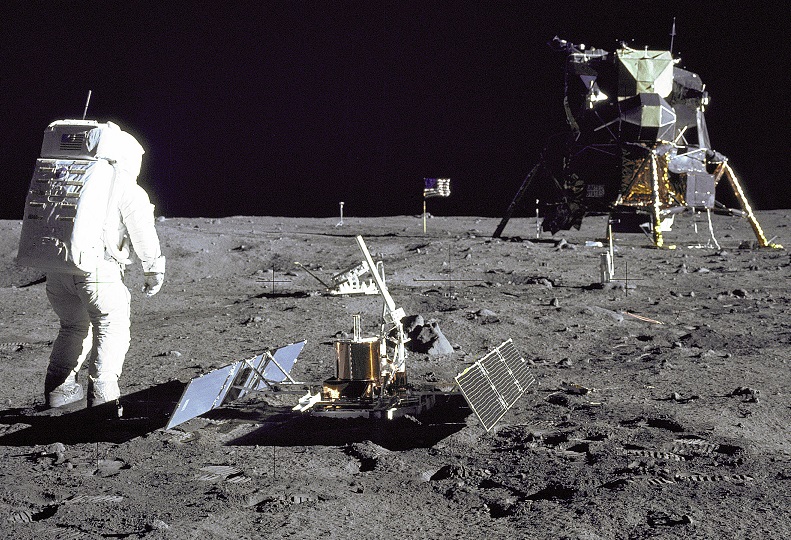
How and when will we get to the next solar system? Probably when we stop thinking linearly and start thinking along terms of "gravitational waves" and the like. Is the shortest distance between two points - a straight line? It may depend on if we are talking time or distance?
EINSTEIN'S PROOF THAT TIME IS NOT CONSTANT: . Table of Contents
In order to prove that time is dependent upon the speed of the observer, Mr. Einstein conducted an experiment on a train. He set up two light poles along the length of the train tracks. A person standing still on the ground midway between the light poles was to observe when the lights flashed on. A person riding in the train was also to observe when the lights flashed. When the person riding in the train reached the midway point, the lights flashed at the exact same time for the person on the ground but the person riding in the train sees the front light first and the light they were moving away from last (using a mirror device). Time was not the same for the two observers. Many decades later, another experiment was conducted using a stationary atomic clock and another on a high speed jet. The clock on the jet plane did indeed move slower than the stationary clock. Reality is dependent upon your perspective.
1905 - The Theory of Special Relativity. Time and Length are dependent on the SPEED of the observer. The faster the observer, the slower time passes and the shorter one becomes! The speed of light is the constant in the universe! Time and Mass fluctuate. E = mc², energy = matter times the speed of light squared.
1916 - The Theory of General Relativity. The Gravity of any mass (say our sun) has the effect of warping the time and space (length) around it (if our orbit changed our length and aging could change), based upon the Equivalence Principle that states that Gravity is equal and opposite to the Acceleration of any mass (say an elevator, a rocket, or a planet). To visualize this, imagine a rubber bed sheet with a bowling ball dropped onto the center of the sheet. The bowling ball stretches and warps the sheet. Now take a baseball and drop it near the bowling ball. The baseball will move toward the bowling ball due to the depression in "space" created by the larger mass. In a sense, the earth is caught in the sun's wake and the sun is caught in the depression in space created by the black hole in the center of the Milky Way.

Put another way - An accelerated mass creates a gravitational wave (or 4th dimension) that moves outward in all directions, capable of warping time and space. Envision 3 stones dropped in a still pond and imagine how the ripples would move and intersect. This is a three dimensional model of what gravitational waves would look like around us and in space if we could see them. They are exerting their force on you even as you read this.
One of the best analogies, due to the complexities of visualizing multi-dimensional space and an expanding universe, is that of a rolling boulder in a raging river heading toward the vast ocean. It gets bumped and changes direction as it's eddy currents pull other matter along. How many hazards does a boulder face on the way towards the vast ocean? Probably about as many as Mother Earth faces on her way towards the outskirts of the universe.
Proof that light is bent by gravitational waves has been demonstrated numerous times. The Einstein Cross is perhaps the most striking example of this fact. (1997) This photo shows the bright light from a distant quasar (8 billion light years away) following the curvature of space created by the gravitational wave from a "nearby" galaxy (400 million light years away, center of photo), thereby creating four images of the quasar. This image can only be seen from the southern hemisphere where the nearby galaxy is directly in the line of sight of the distant galaxy, creating a "gravitational lens".

The Einstein Ring (1998) is an even more incredible example of our "4th visible dimension", gravitational waves . For photos & more information, Google "Einstein Ring".
STRESSFUL EVENTS LIST: . Table of Contents
The following events are considered to be some of the most stressful we will experience during our lives (listed by approximate order).
War, Poverty, Death of a spouse, death of a close family member, divorce, separation, jail, personal injury or illness, marriage, fired at work, retirement, change in health of a family member, pregnancy, new family member, sexual problems, business re-adjustment, change in finances, death of a close friend, change in work, foreclosure, child leaving home, outstanding achievement, spouse stops or starts work, begin or end in school, change in vices, trouble with boss, change in work hours, change in residence, change in sleep habits, vacations, Christmas, minor law violations.
How many of these events have you had to deal with? Did you handle them well? Being aware of these events can help us understand the human (emotional) condition that makes life worth living. If some of these events didn't cause us pain, maybe we would have even more cause for concern.
Here is a way to control your stress level. When stressed, relax for a moment and visualize a pressure gauge or thermometer at peak level. Then "watch" the gauge go down as you gain control of your stress. Relaxation techniques can also help reduce stress.
EDUCATION TIPS: . Table of Contents
The Teacher & the 5th Grader - Author unknown
Peace needs to be taught in our schools and in our homes. We envision a
yearly class on War and Peace which focuses on previous and current wars, and
the reasons for them. If we learn from our mistakes then we can focus on world
wide peace efforts which will diminish the need for war. Our children are the
future. Teach them right and the future will be all right!
(related site: Education For Peace web site )
Another topic that needs to be addressed is the teaching of the stages of life. We all go through very similar things: Birth, Dealing with siblings, Finding our identity, Puberty, Sex, Marriage, Work, Sickness, and Death, to name a few. The goal is to help our offspring every step of the way by advising them about their particular phase and coming stages each and every year. With each age comes new challenges and awareness, let's guide our children so they don't get lost.
Education needs to find a balance between left-brain and right-brain activities. We are cheating both the left-brain and right-brain dominant kids by teaching and rewarding predominantly left brain functions. In the past we may not have realized this but now that we are aware, let's get creative and start rewarding right brain activities as well. One way may be to have an art contest and have the kids judge the exhibits with awards going to "the favorite", "the most creative", "the best use of color", "best composition", "the best use of shadows", "the best use of negative space", "the most emotion provoking", etc...
Positive Signs of Evolving Peace:
By reading this newsletter, you have just become one of the most important signs that peace is at hand. Find Peace and share it with others. Thank you and bless you!


Add a BOOKMARK to find World Peace Newsletter again. . Table of Contents

If you help one person find peace, you will have improved the world.
You have the power to change the world. You just have to decide that you want to!
Have a Peaceful, Joyful and Uplifting Day!
[Sign Our Guestbook / Announce World Peace Events & Organizations]
[View Our Guestbook]
PRINTER FRIENDLY VERSION - World Peace Newsletter - "The Art of Peace" Education Manual - CLICK HERE
Love the World, Love your Neighbor, Love yourself, Love Life. Happiness will be your Reward!

[Sign Our Guestbook / Announce World Peace Events & Organizations]
You may also send private feedback.
Thanks for visiting World Peace Newsletter. 1996-2020 WPE